2025 School of Computing Projects
Computer Science and Engineering students apply the engineering skills they have acquired. The principles of design, how ethics affect engineering decisions, how professionals communicate ideas and the day-to-day implications of intellectual property.
They begin by researching the problem, brainstorming a range of solutions, and traveling to the sponsor’s site to learn more about the sponsor and the project. Student teams maintain contact with their industrial and faculty mentors, hold meetings, and make presentations on their work. Computer Science and Engineering students submit written reports at intervals throughout the two-semester project timeline, and present oral presentations at the project’s conclusion.
Student Teams
-
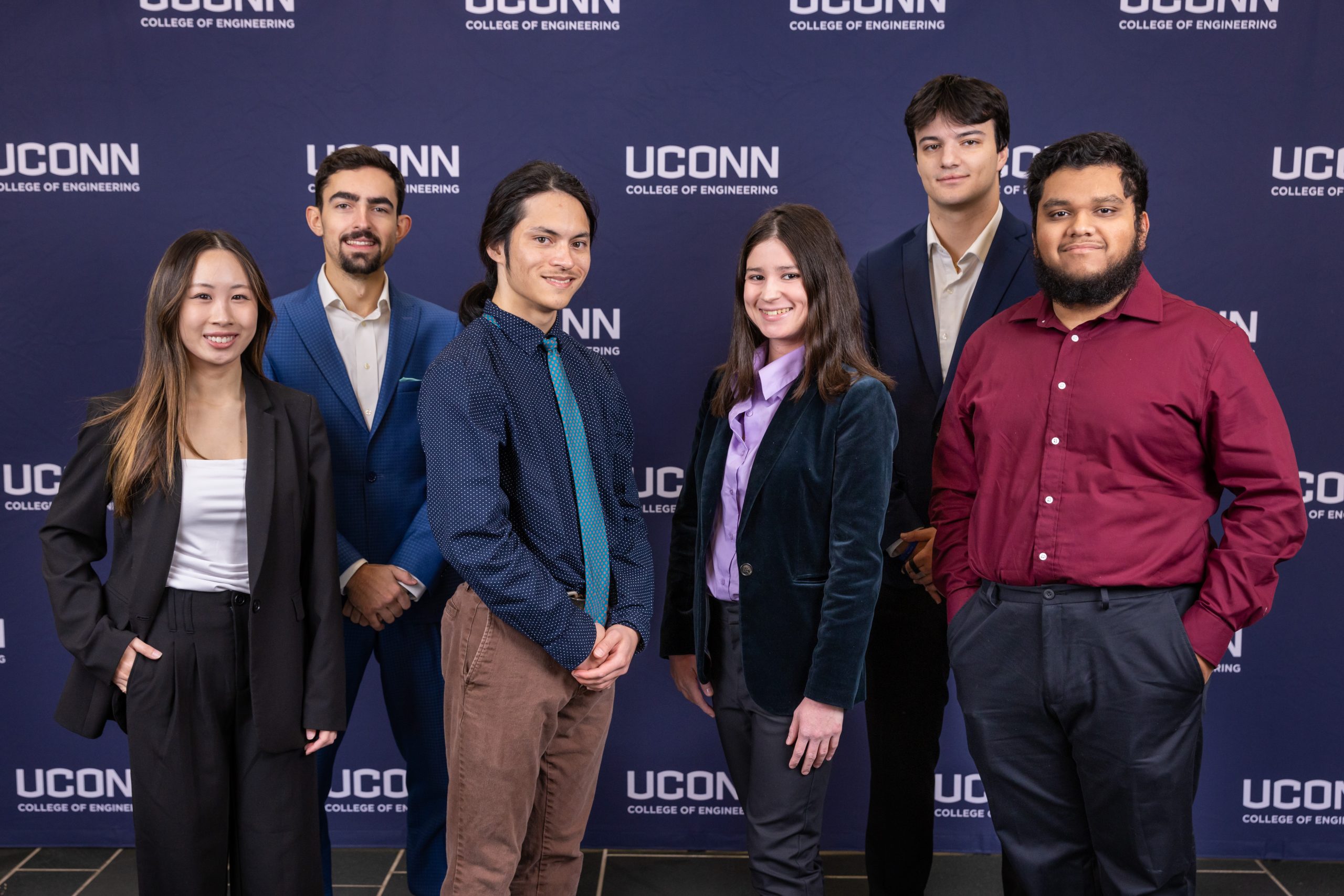
-
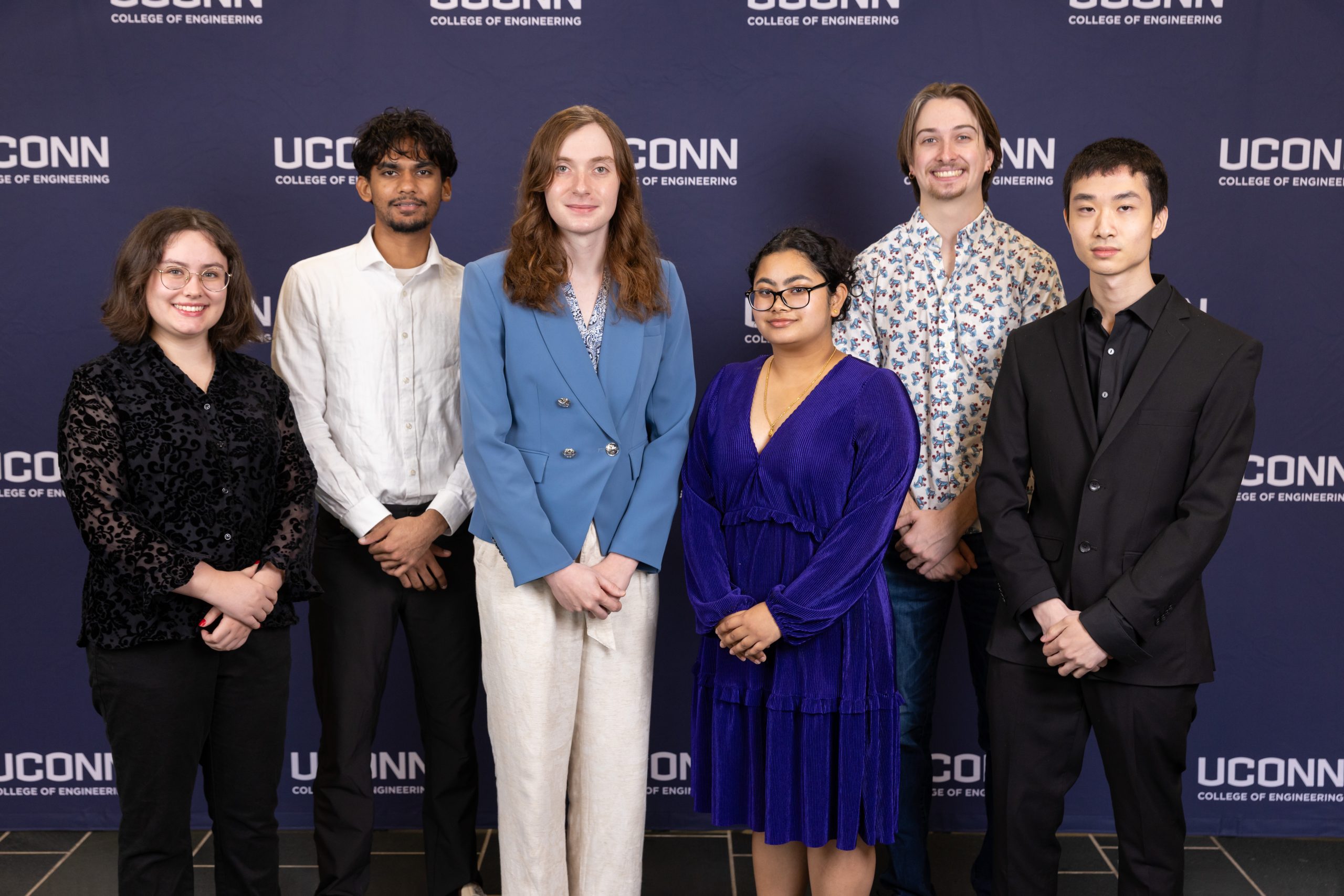
GUI Development for Machine Learning-Enabled Inverse Analysis of Scattering Experiments
-
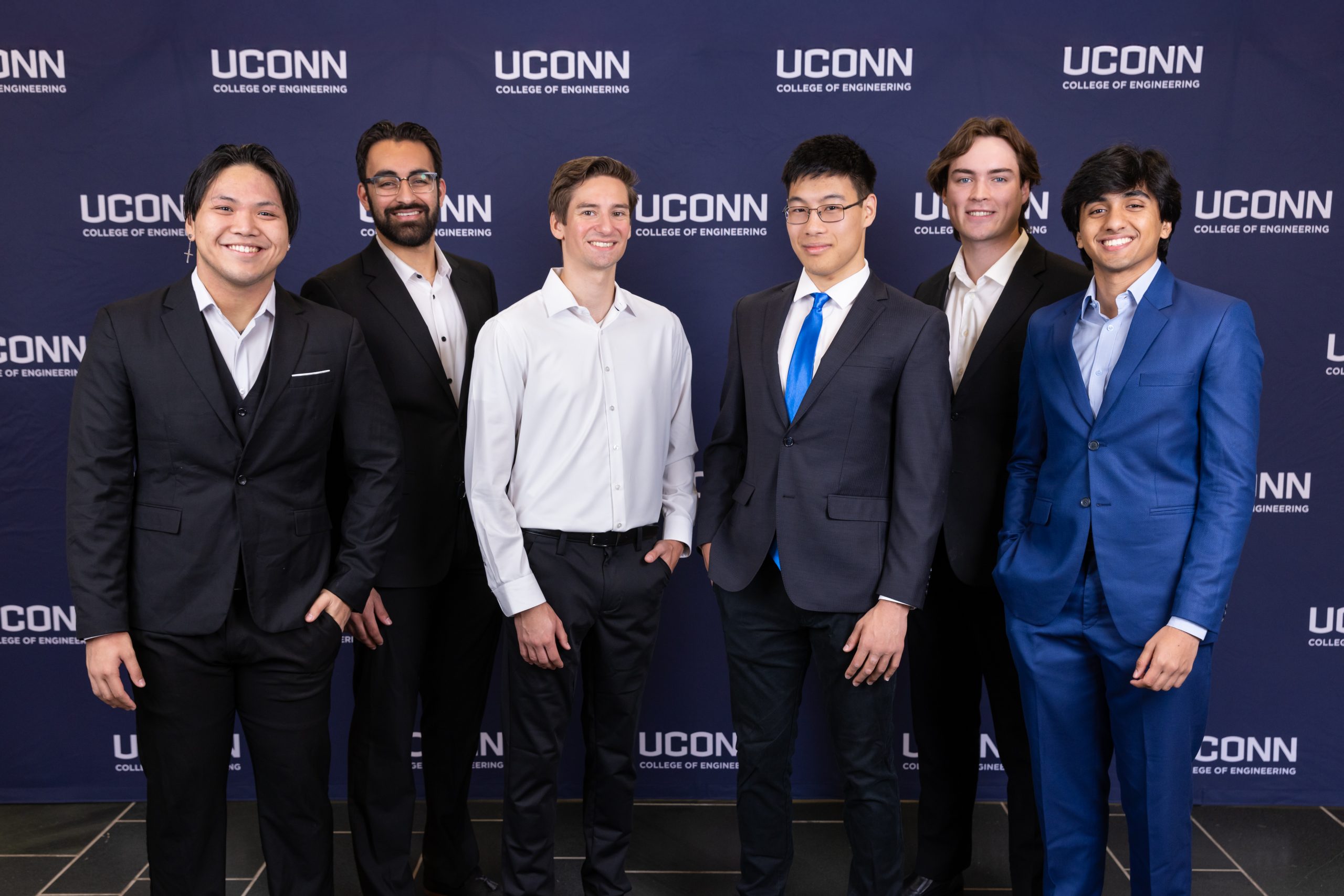
Cloud-based Analytics Platform Development for User Interactions Tracking
-
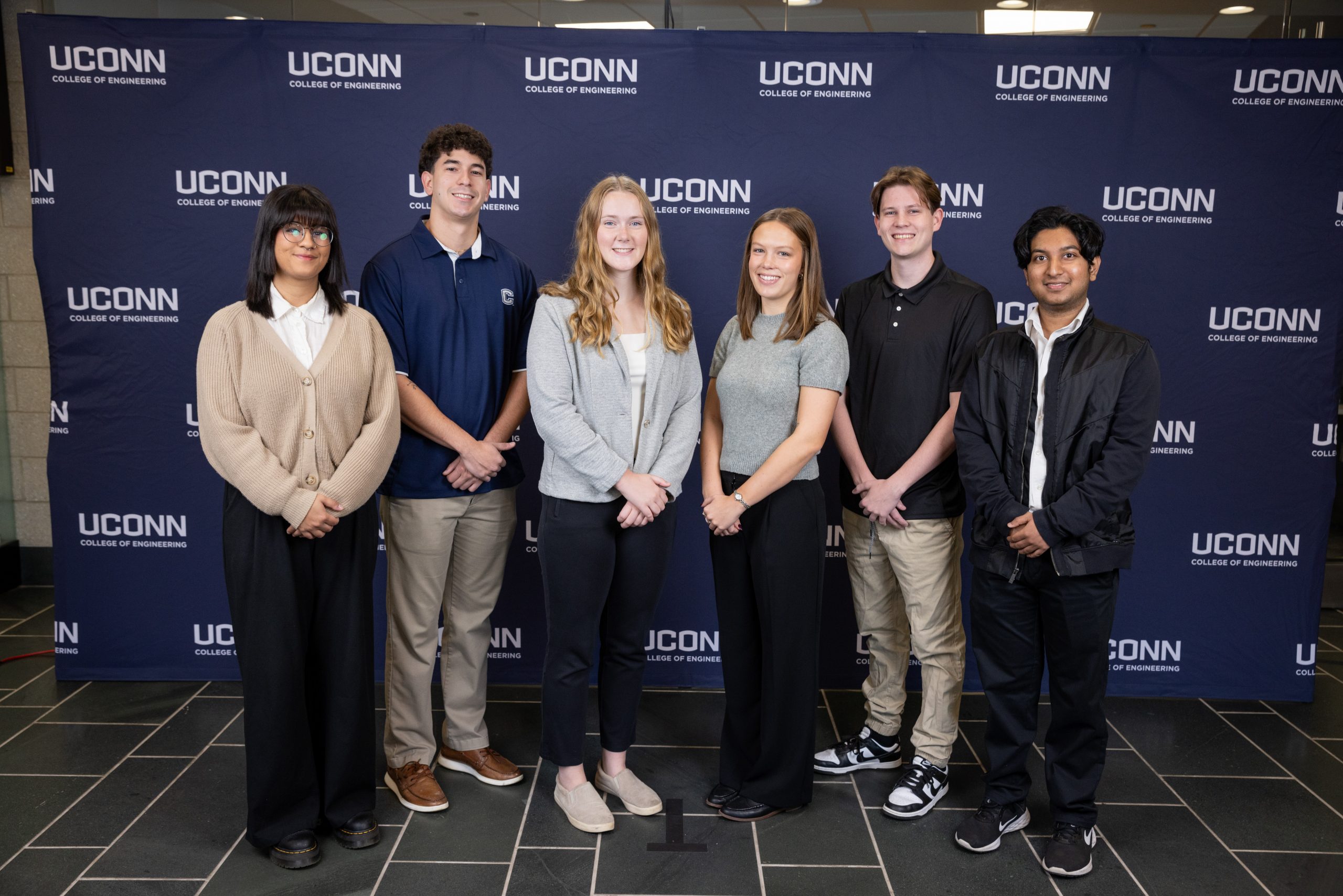
Medical Mobile App for Continuous Glucose Monitoring (CGM) System
-
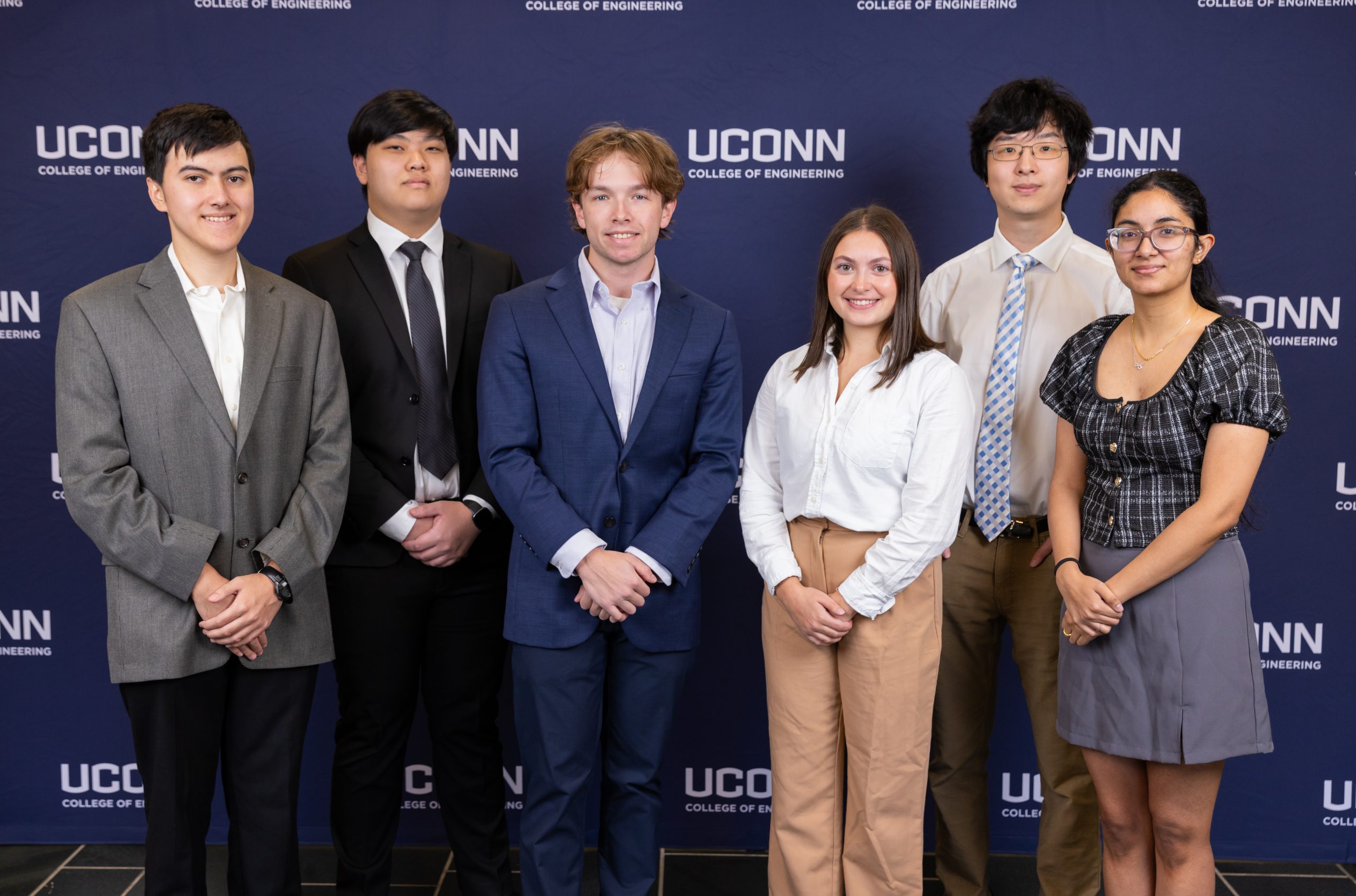
Augmented Reality-Assisted Training Application for Energy Assessment Tools
-

-
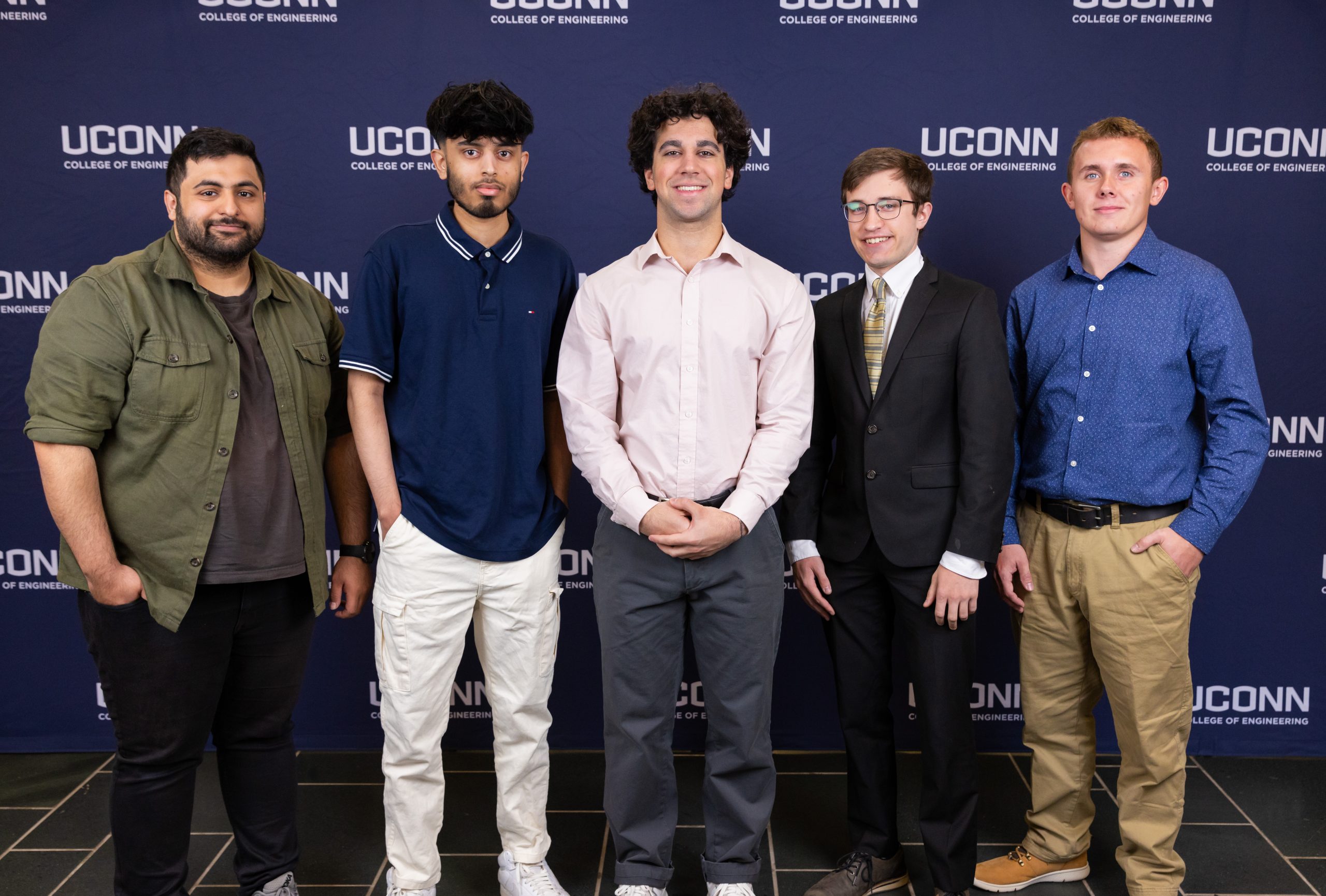
-
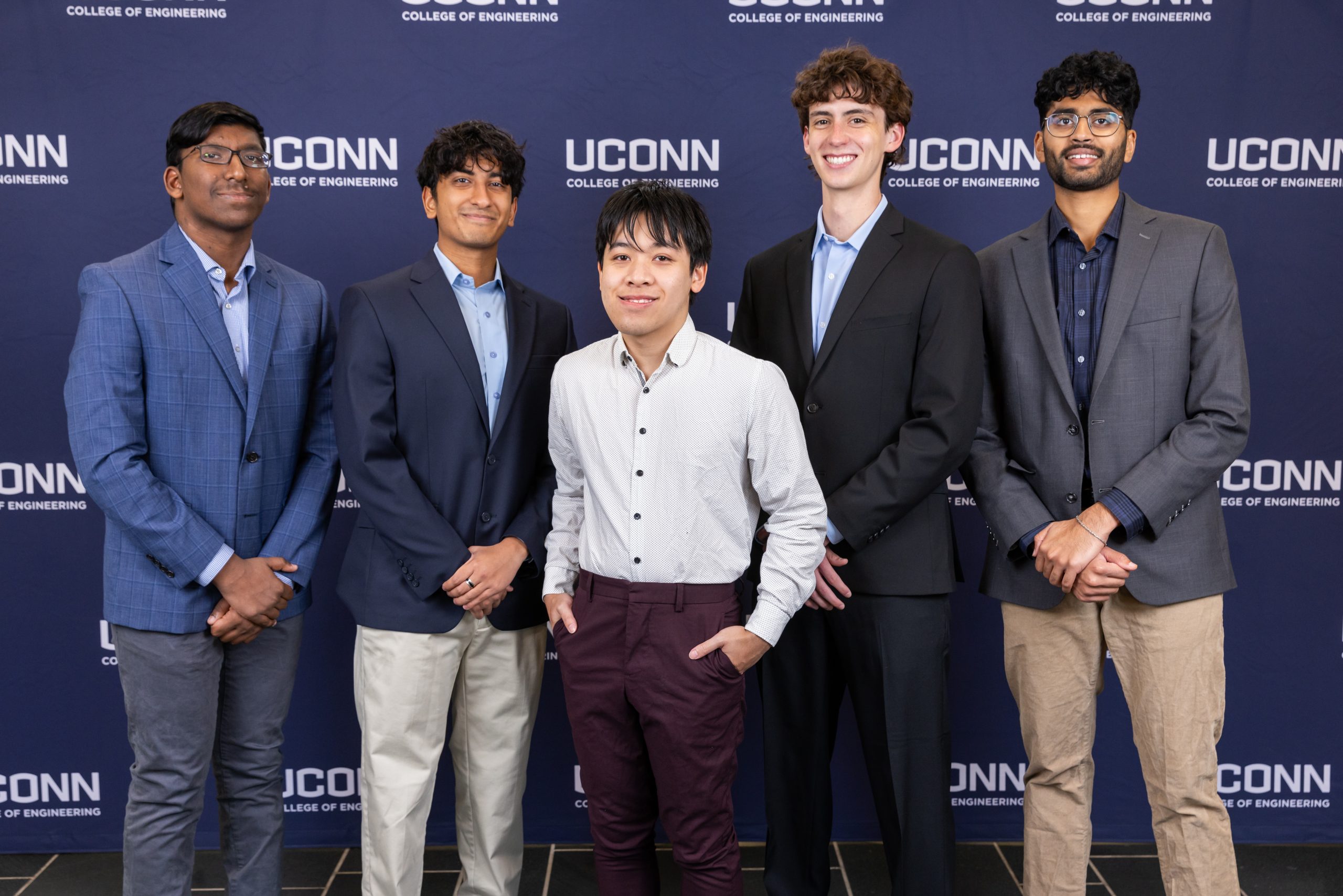
-
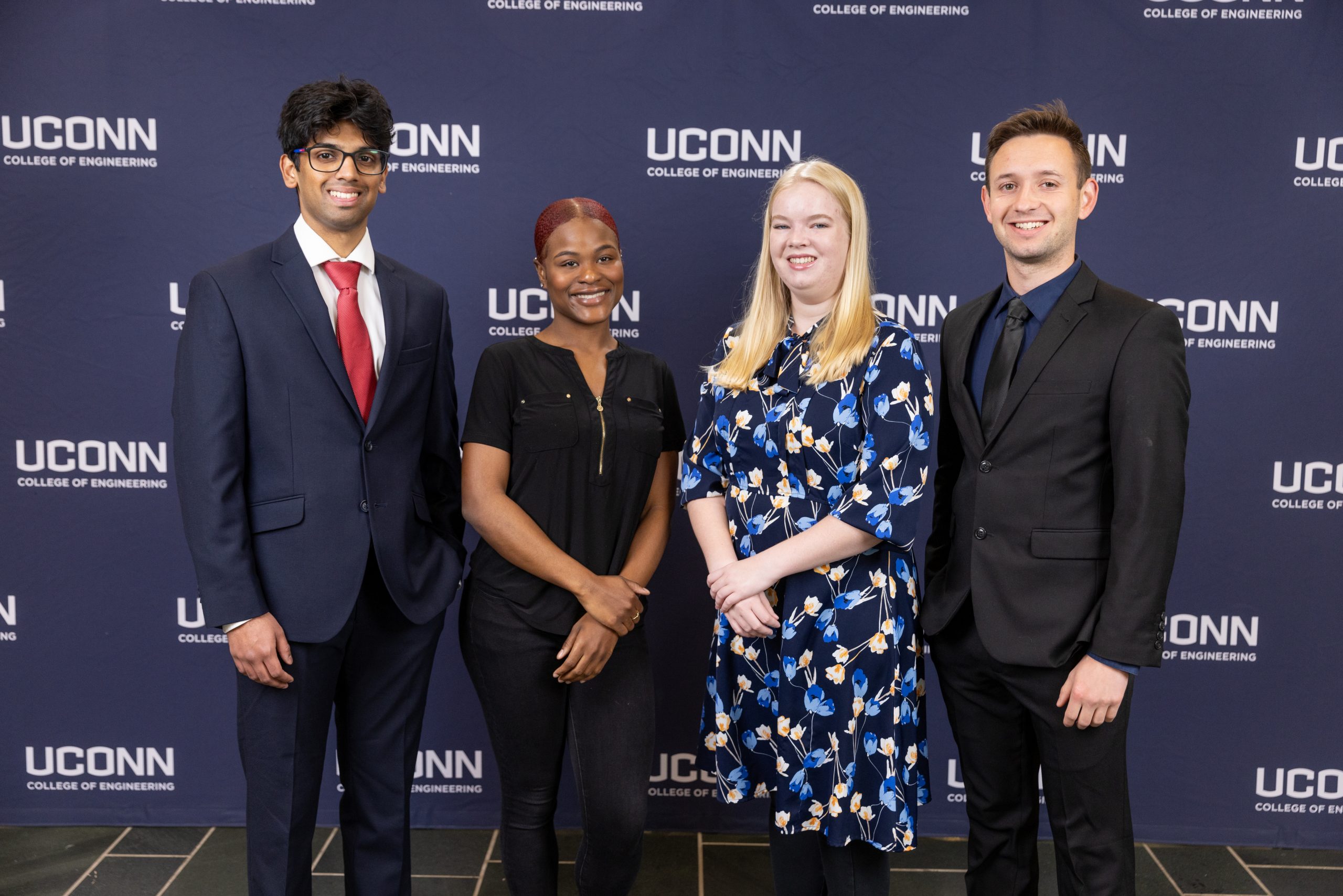
Prediction Accuracy Enhancement for the Outage Prediction Modeling System
-
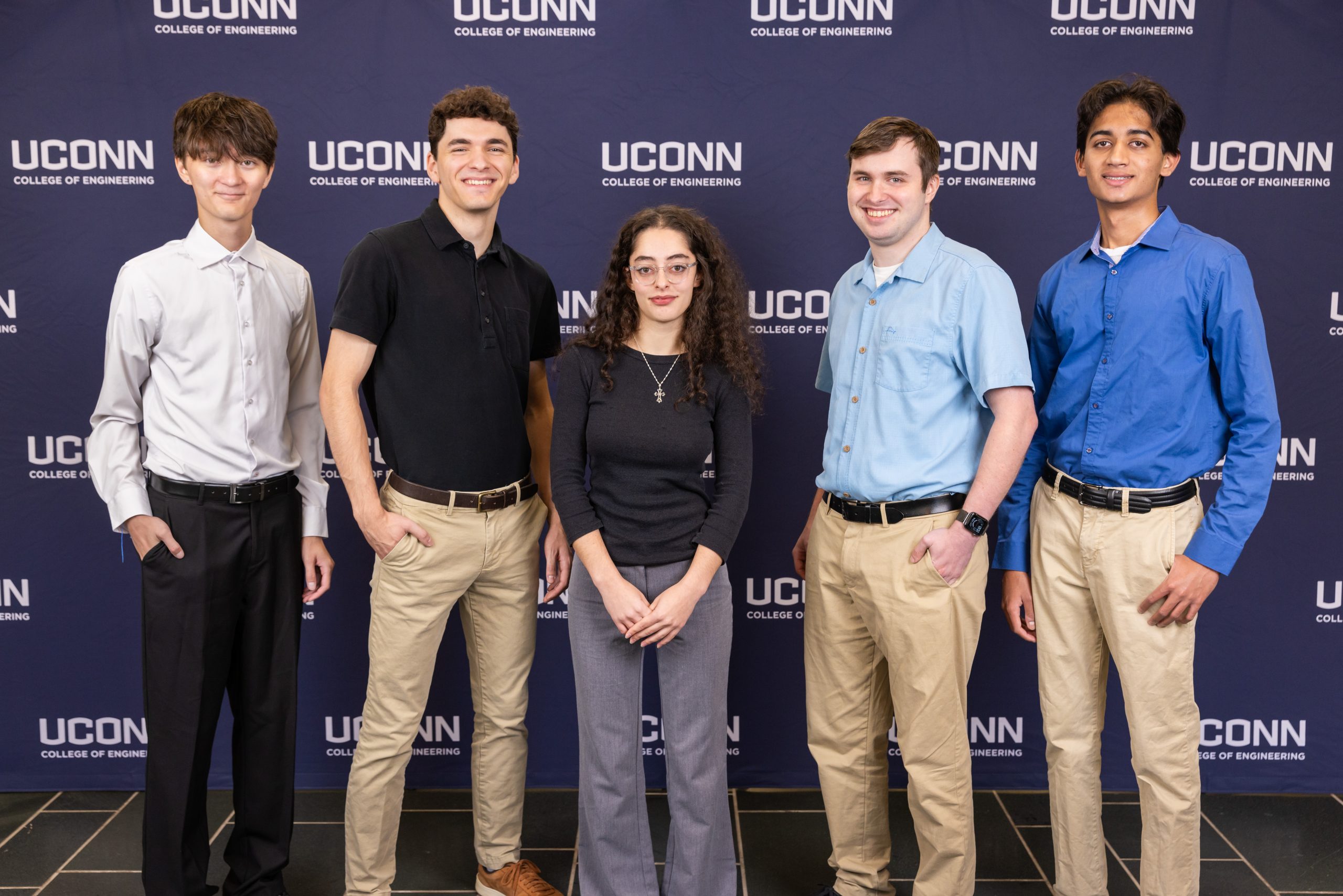
-
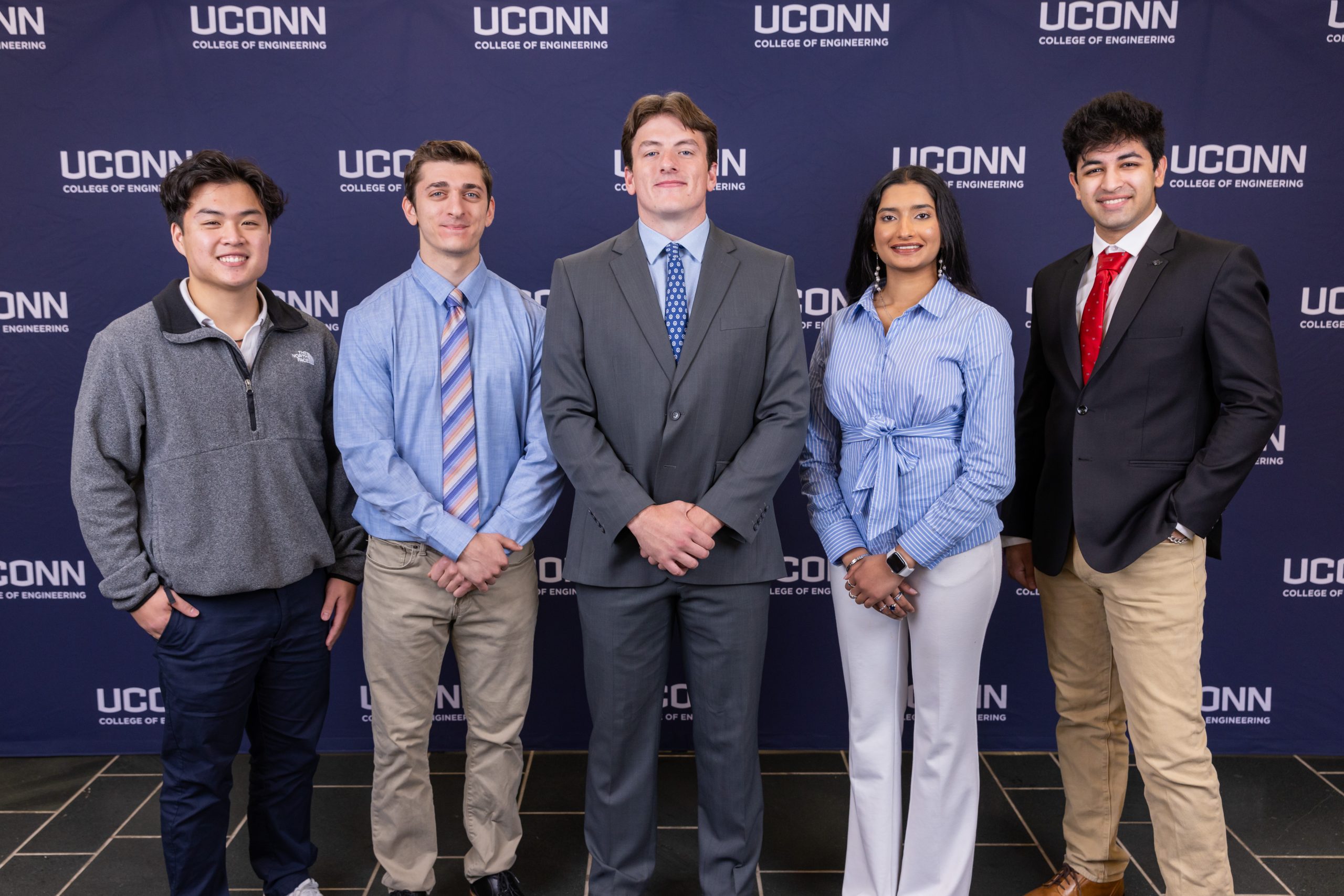
-
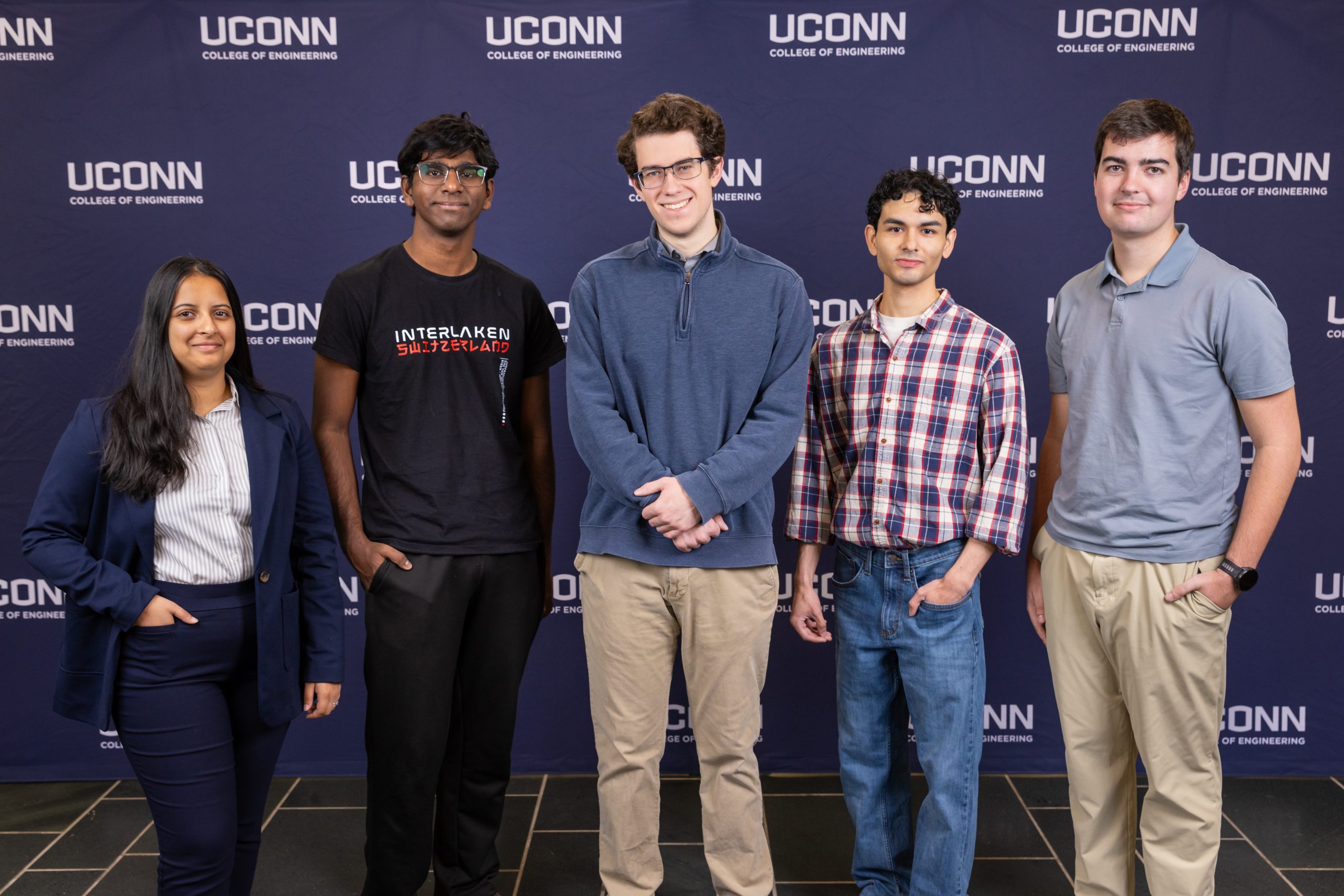
-
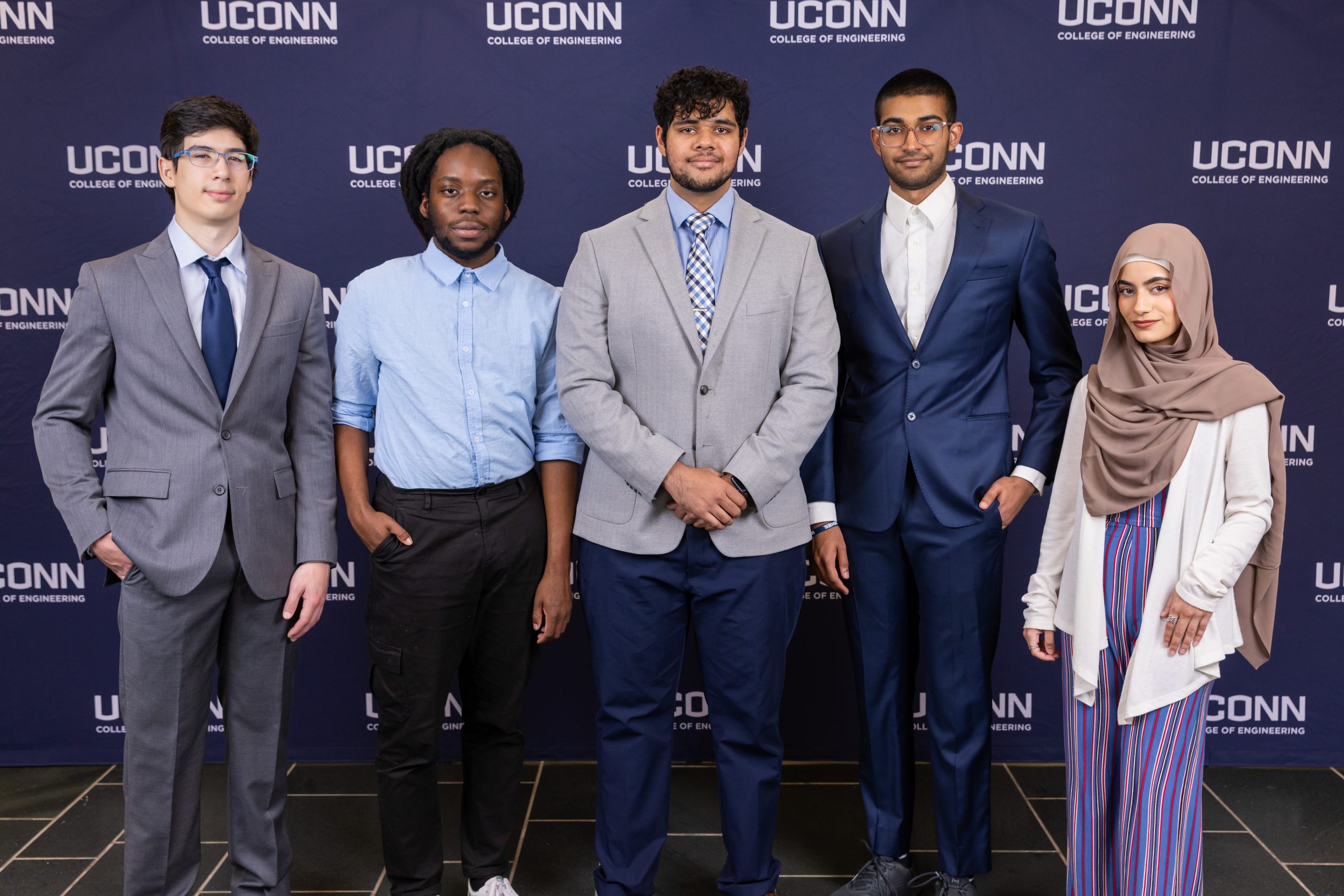
-
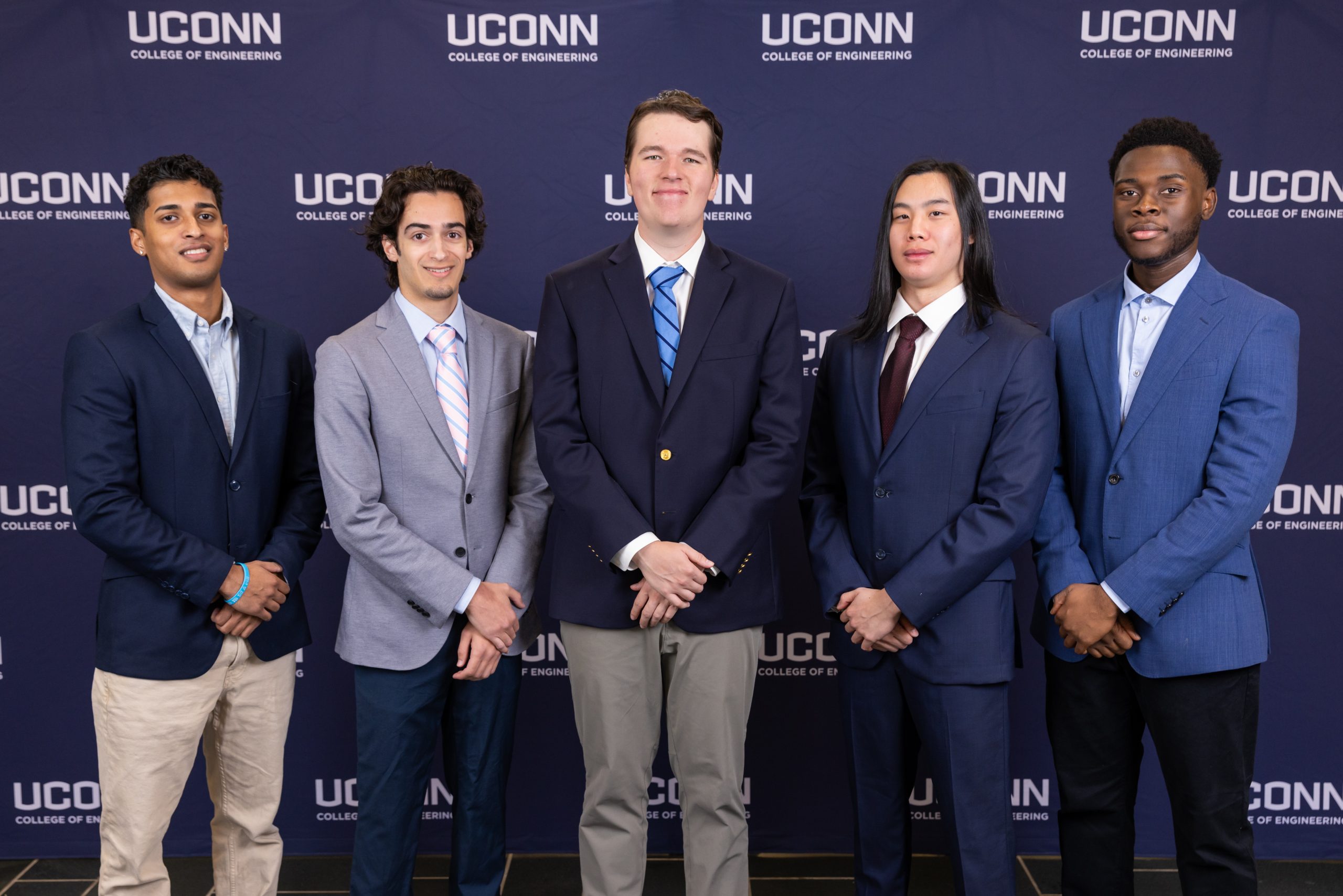
-
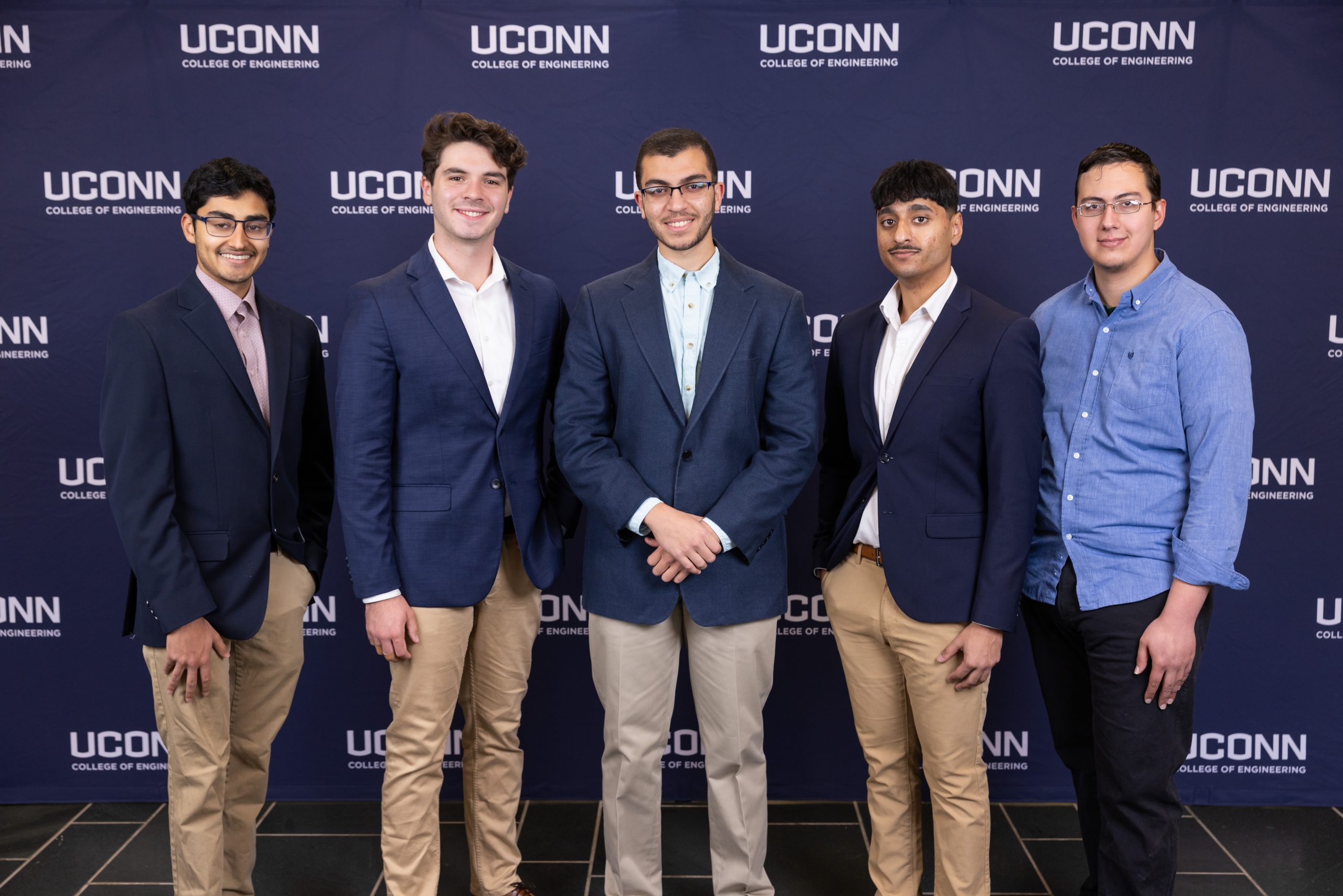
Building a Machine Learning Model to Interpret Virtual X-ray Diffraction Patterns
-
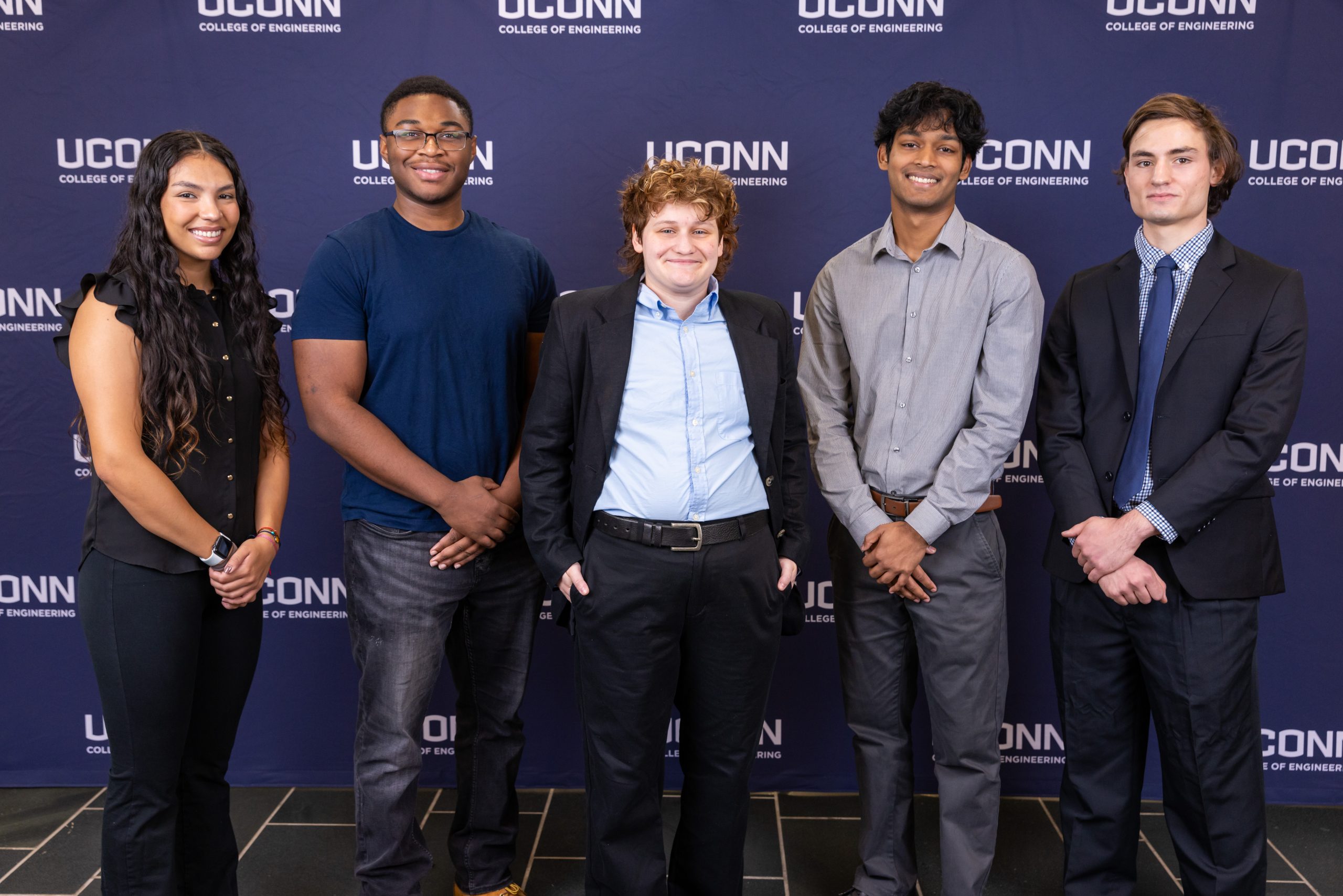
-
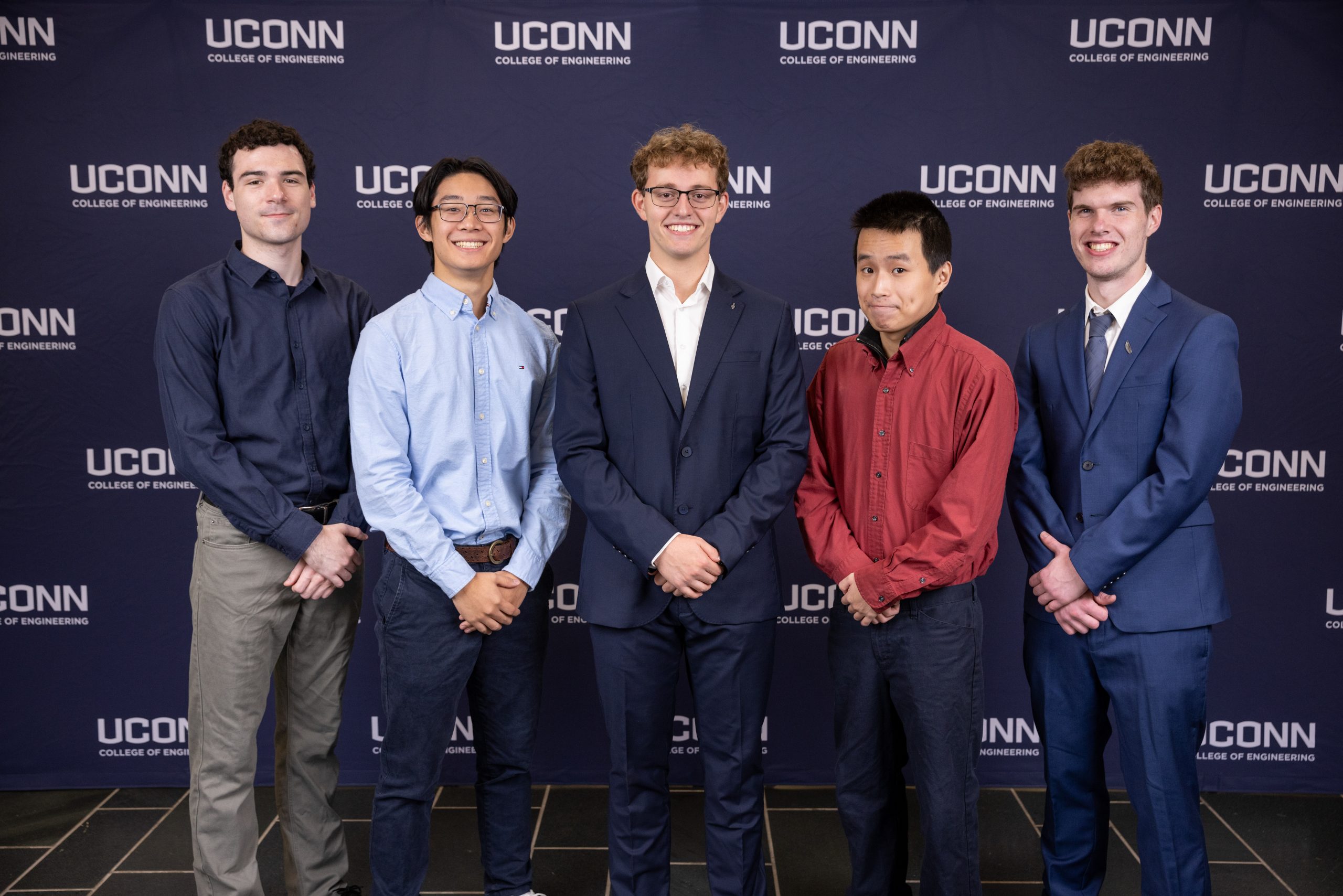
-
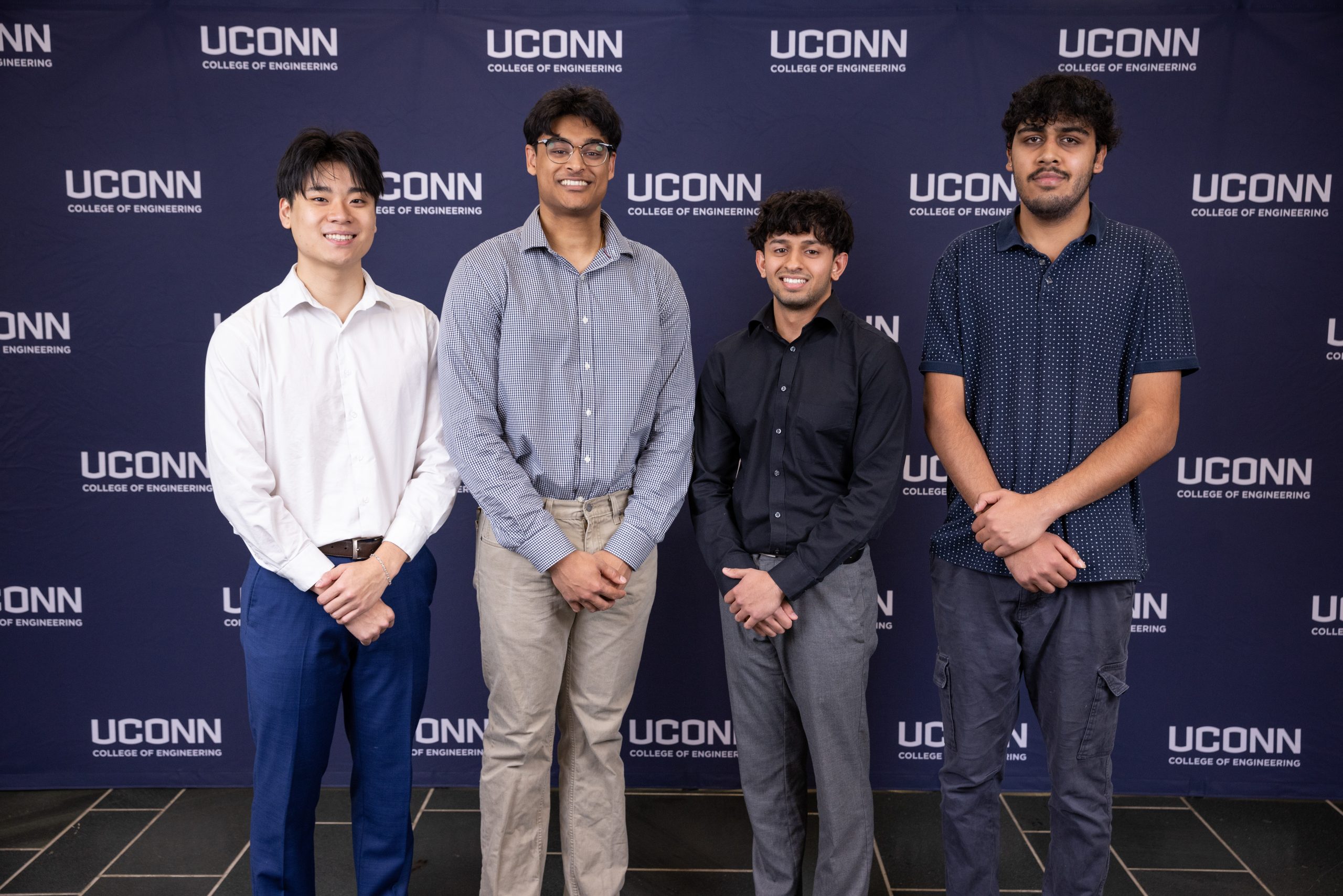
-
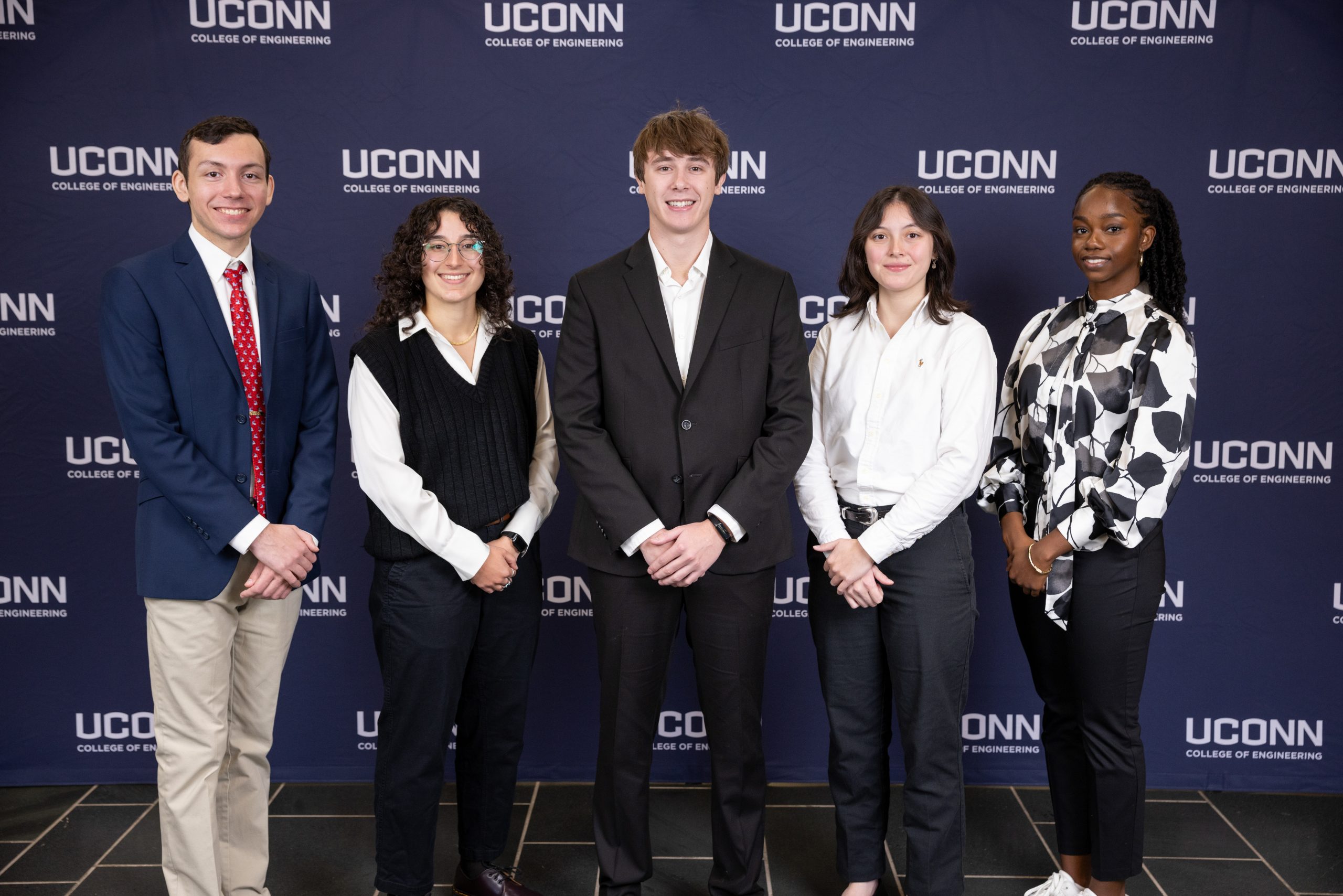
-
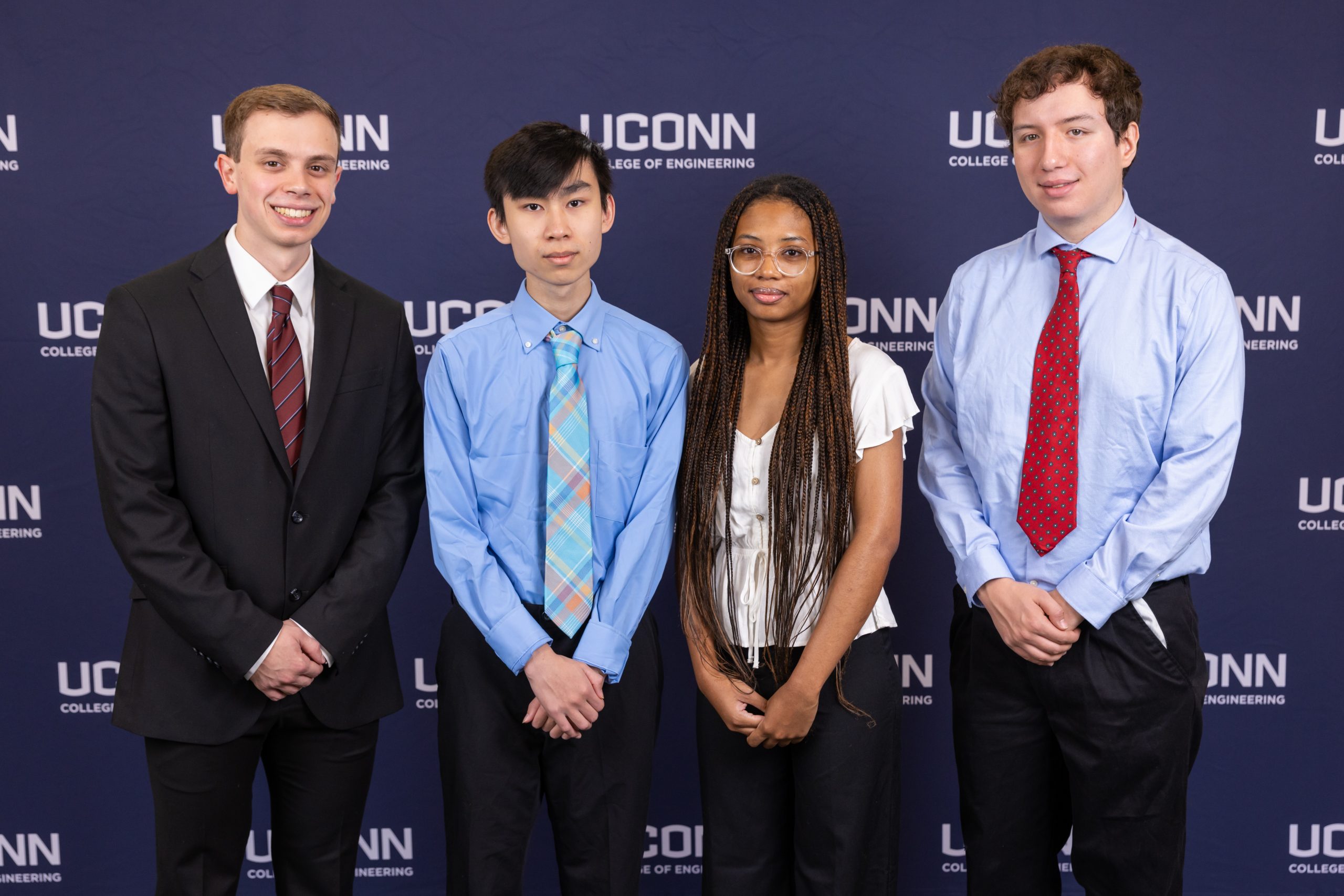
-
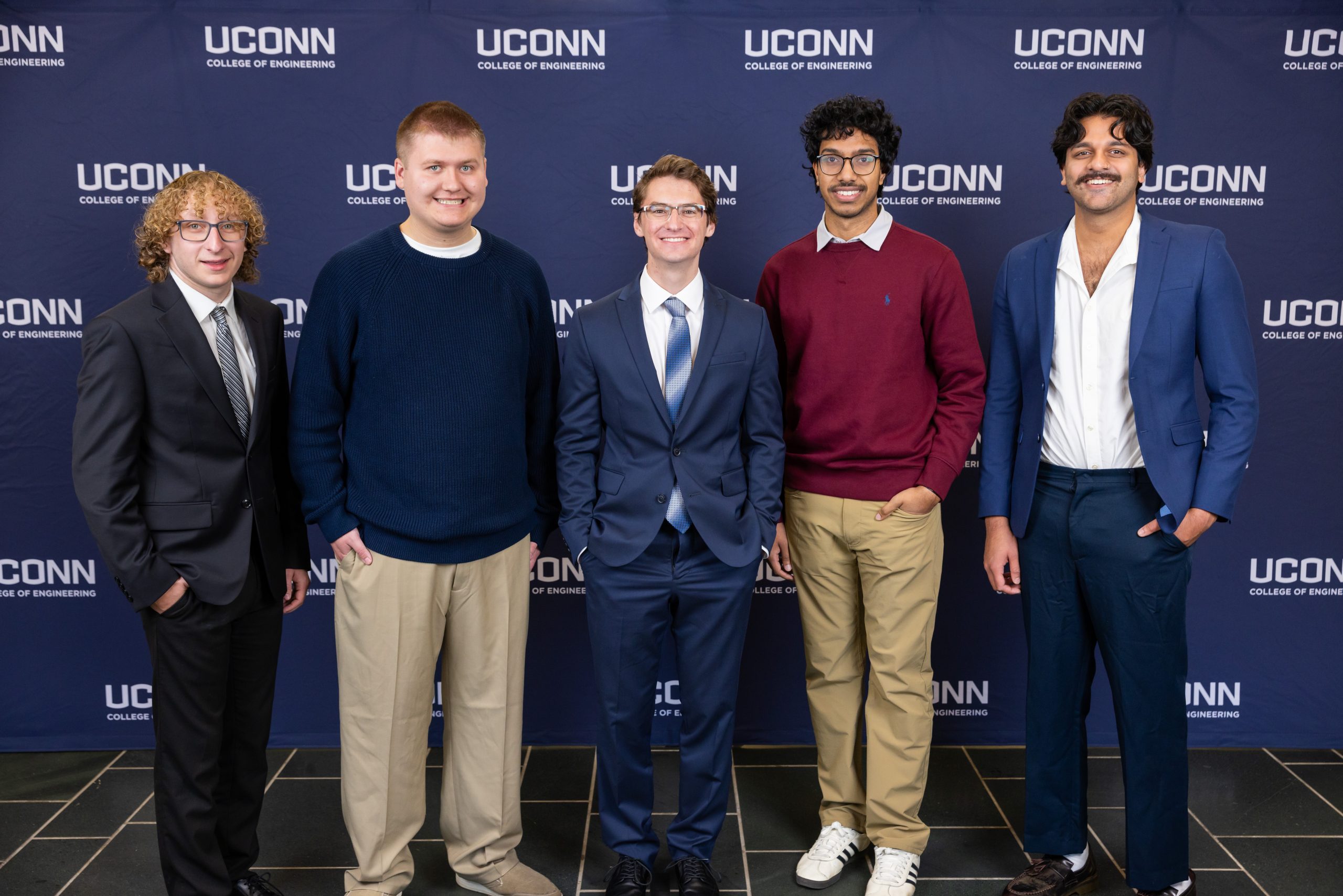
-
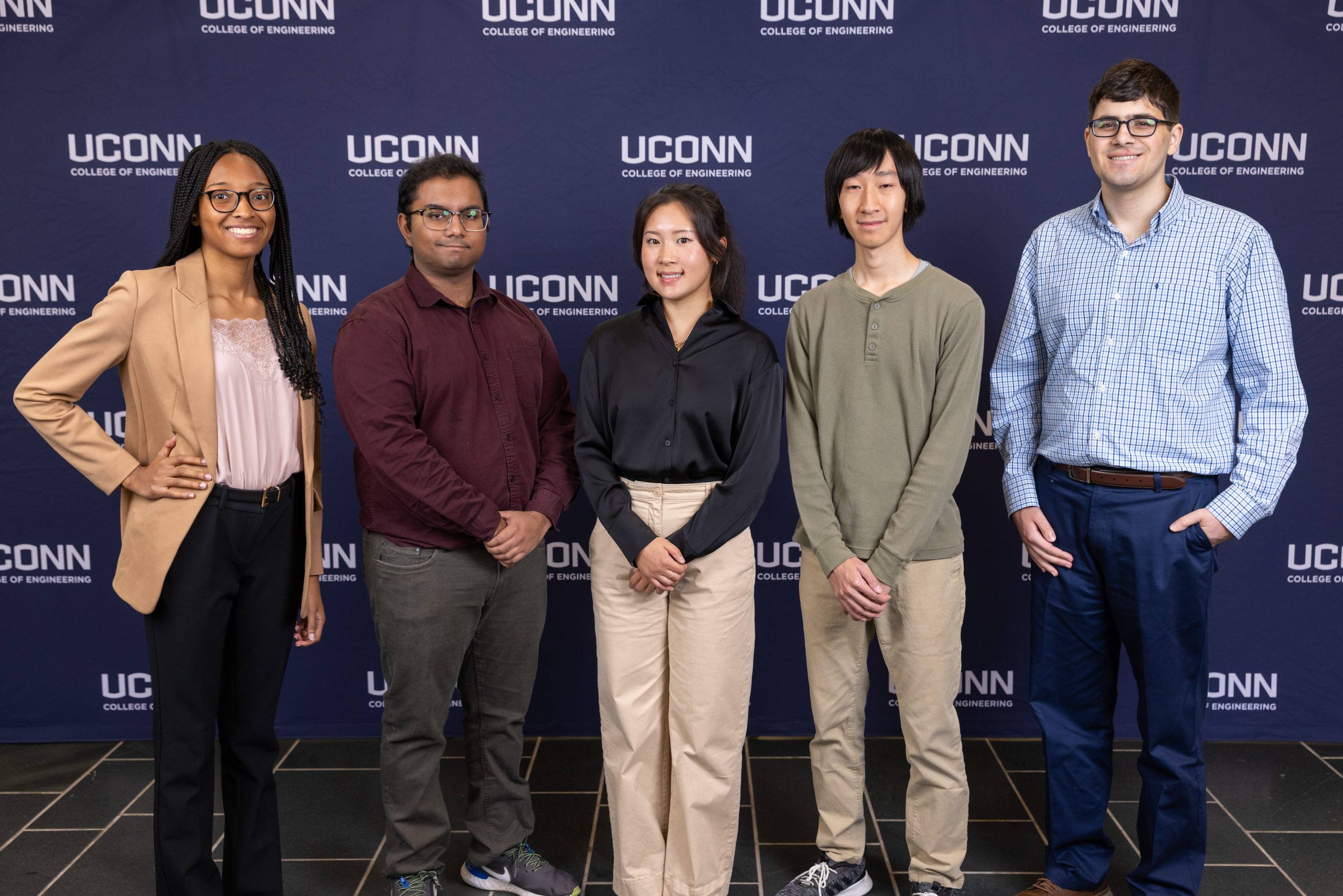
-
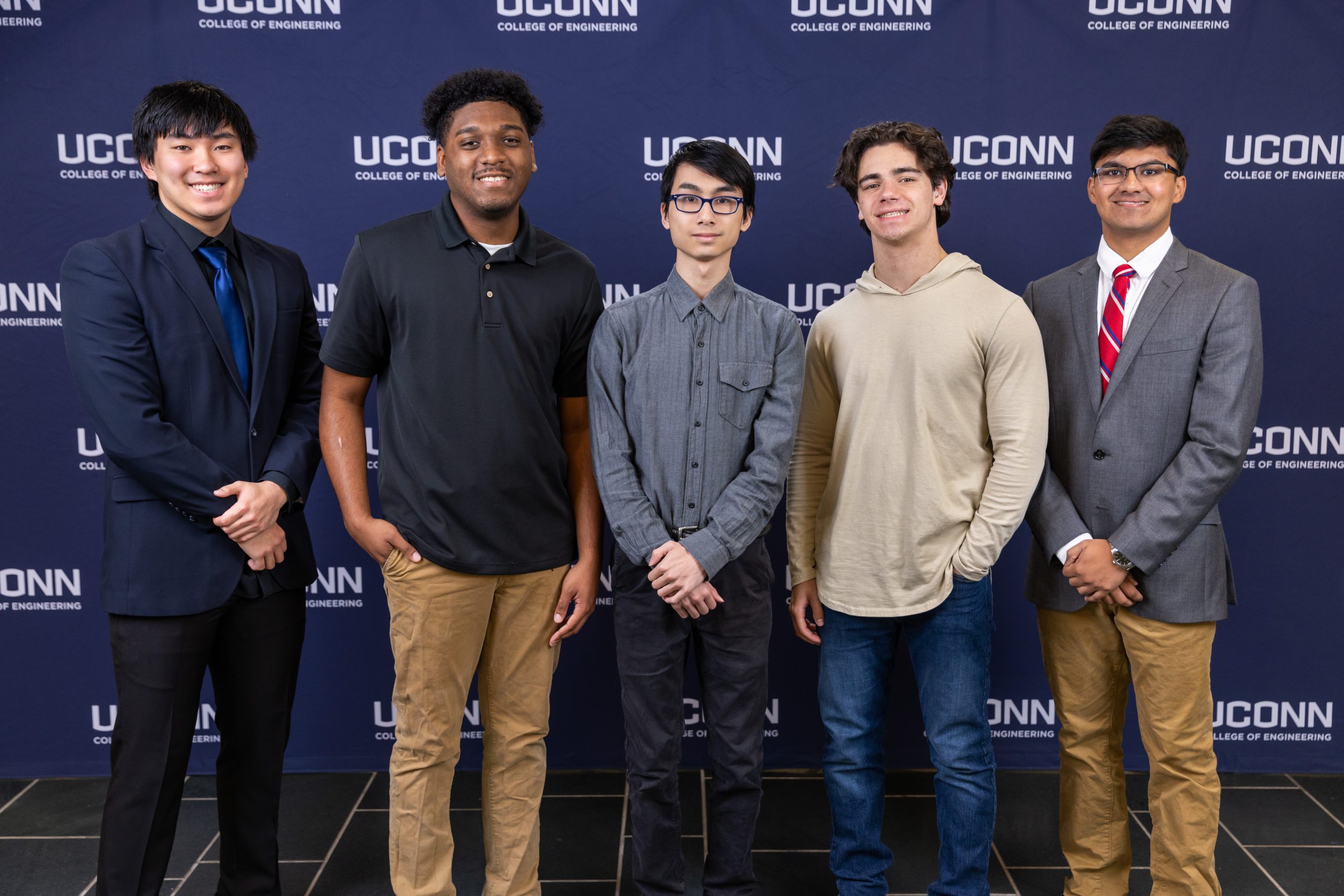
-
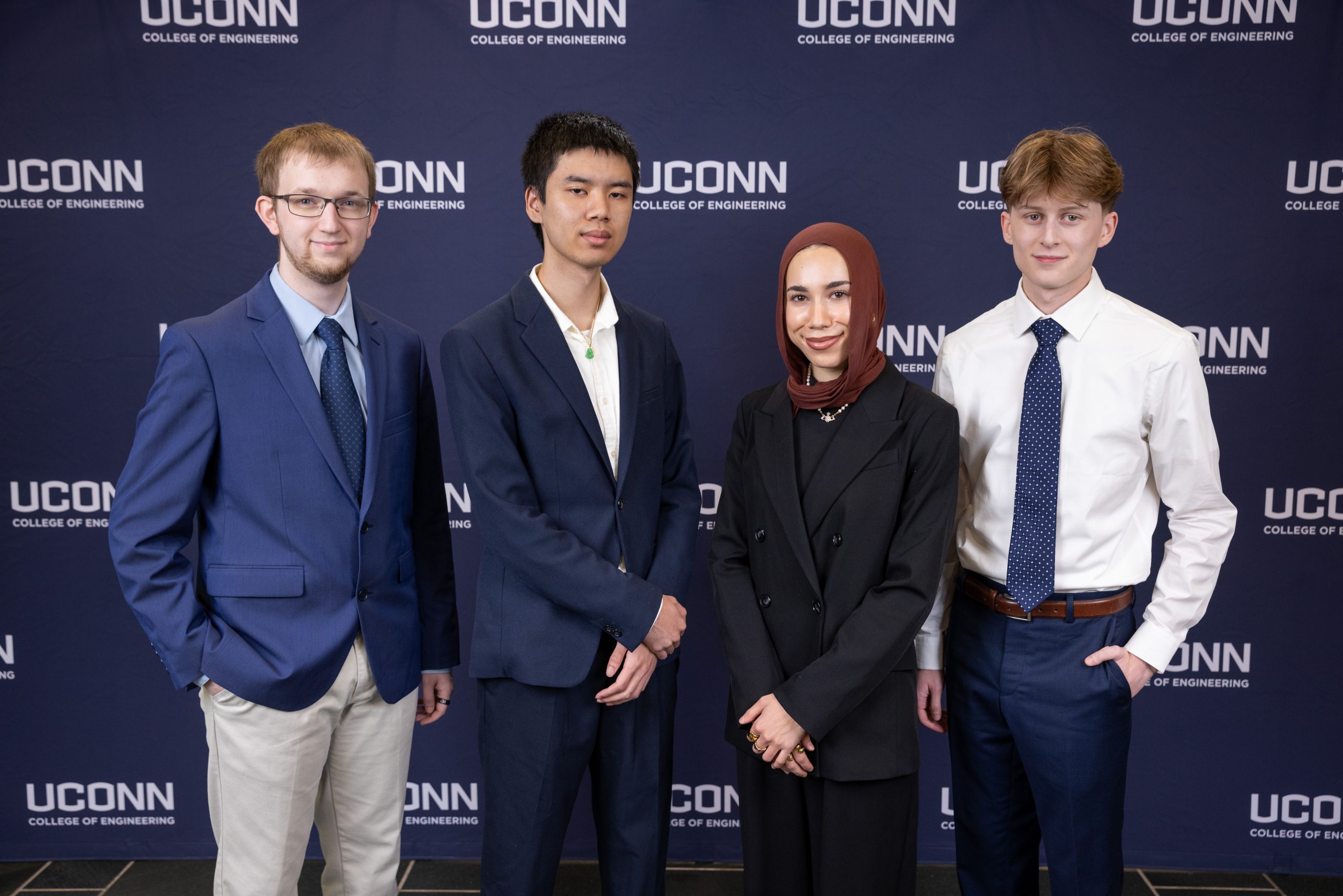
-
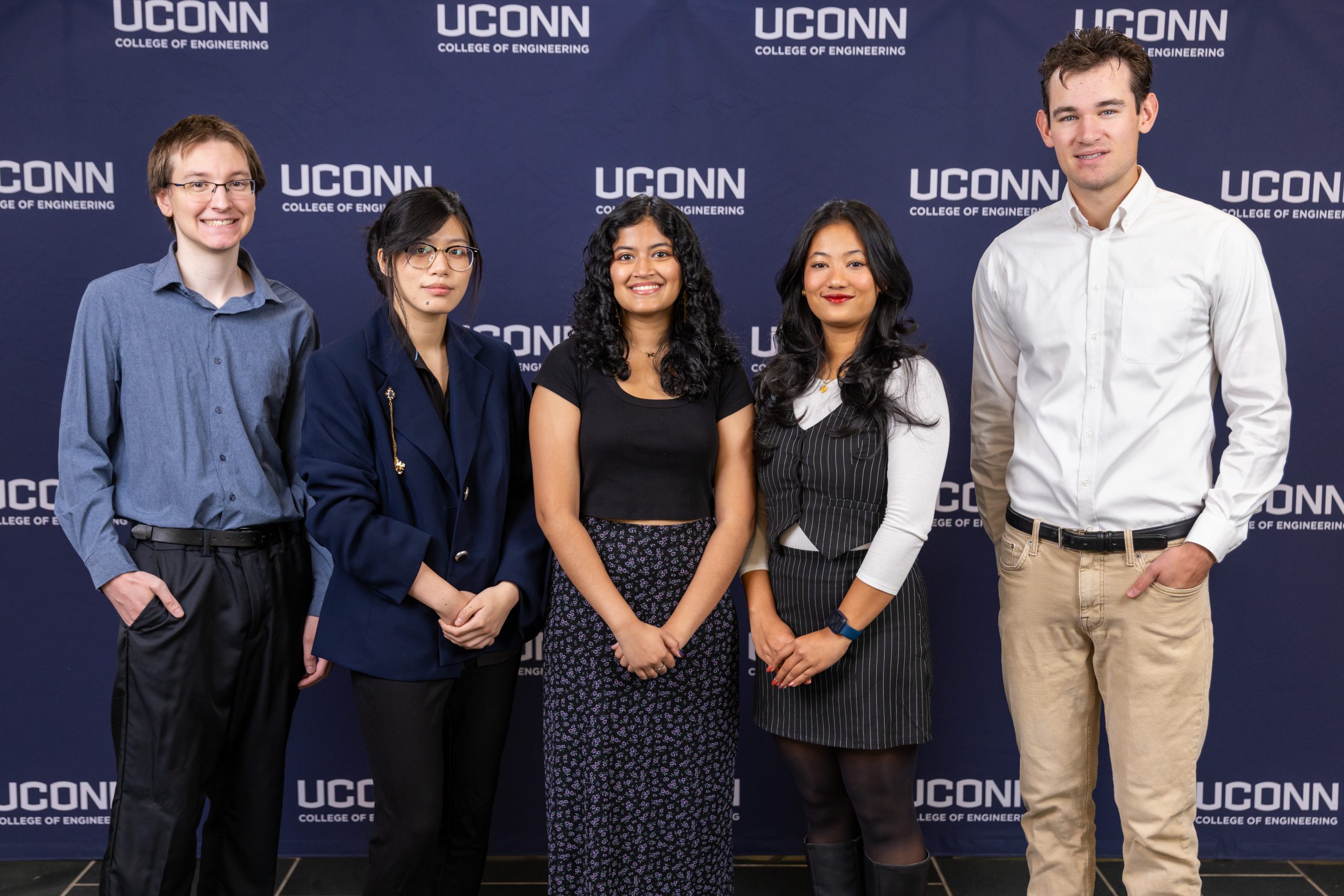
System Modelling of TAK Technology as a Proposed Wildfire Mitigation Common Operating Picture
-
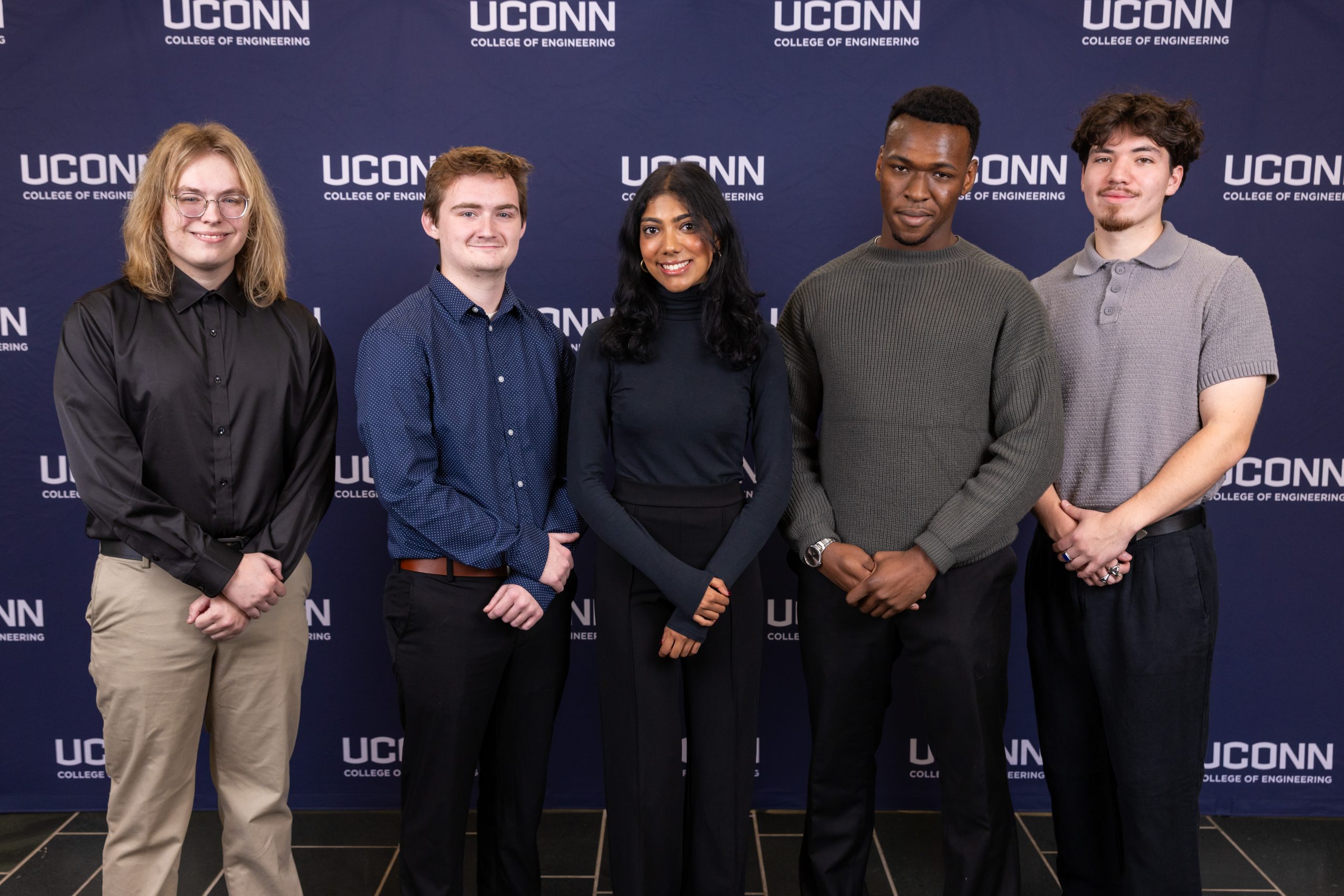
Web-based Data Management and Analytics Toolkit for UConn Industrial Training and Assessment Center
-
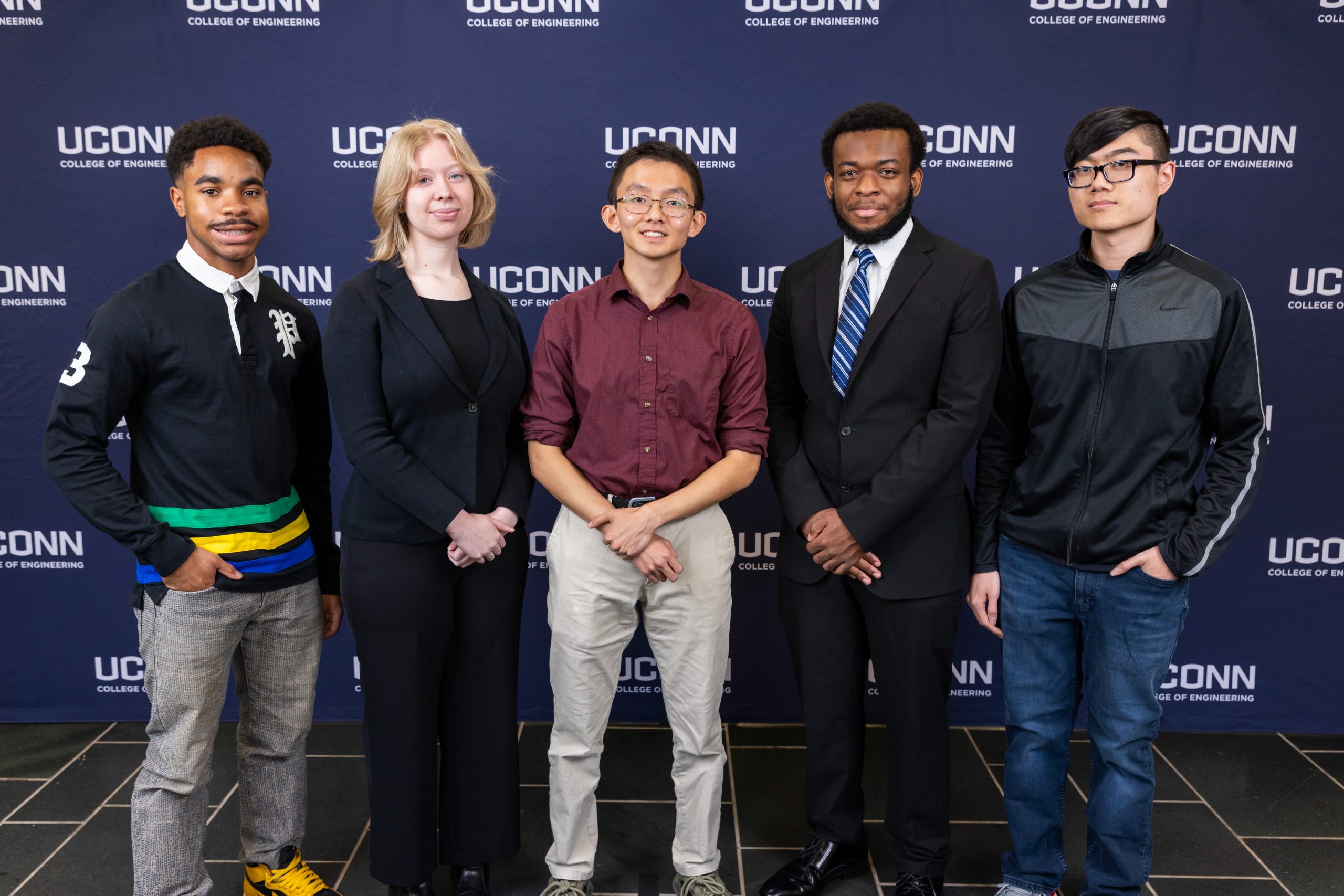
-

-
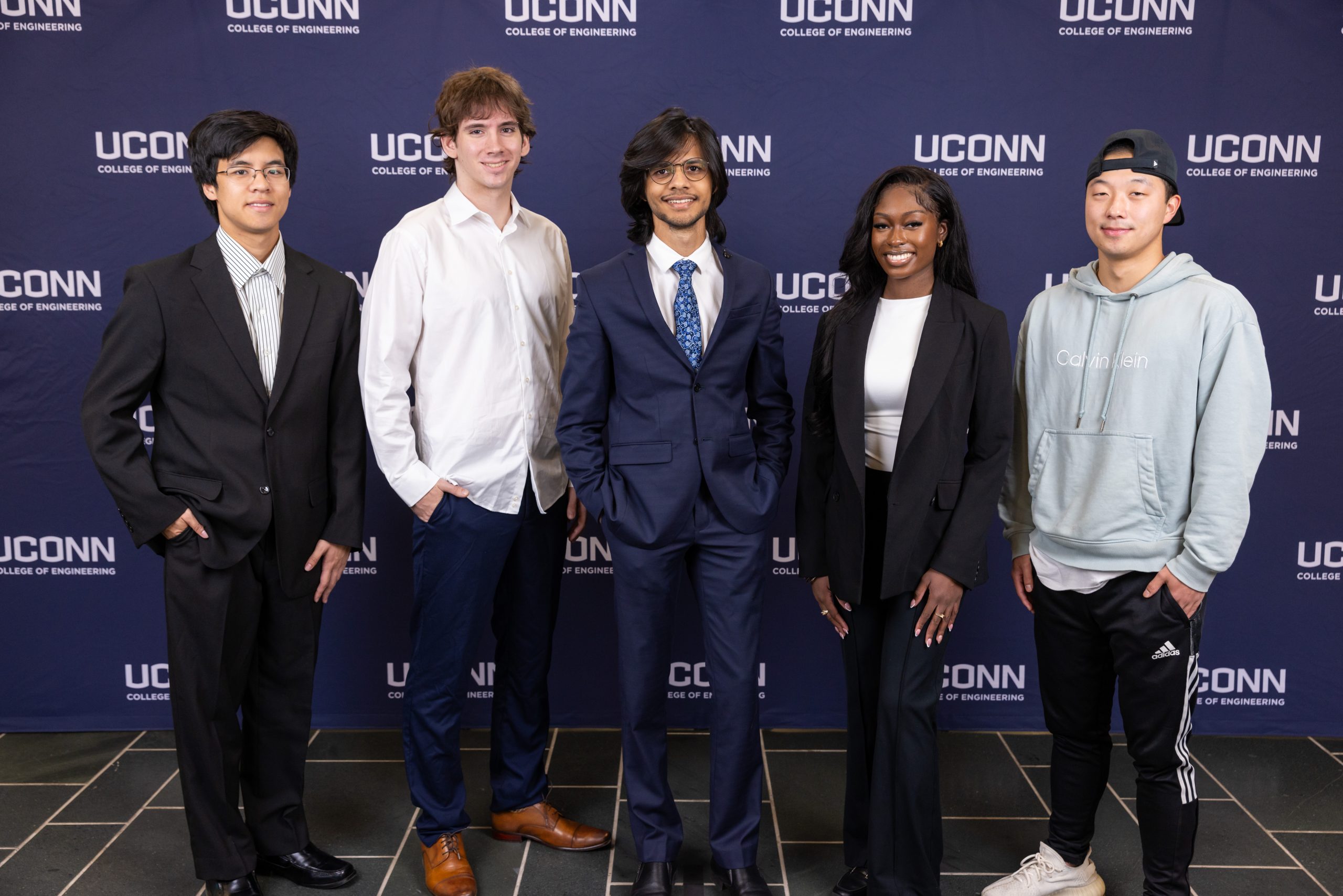
-
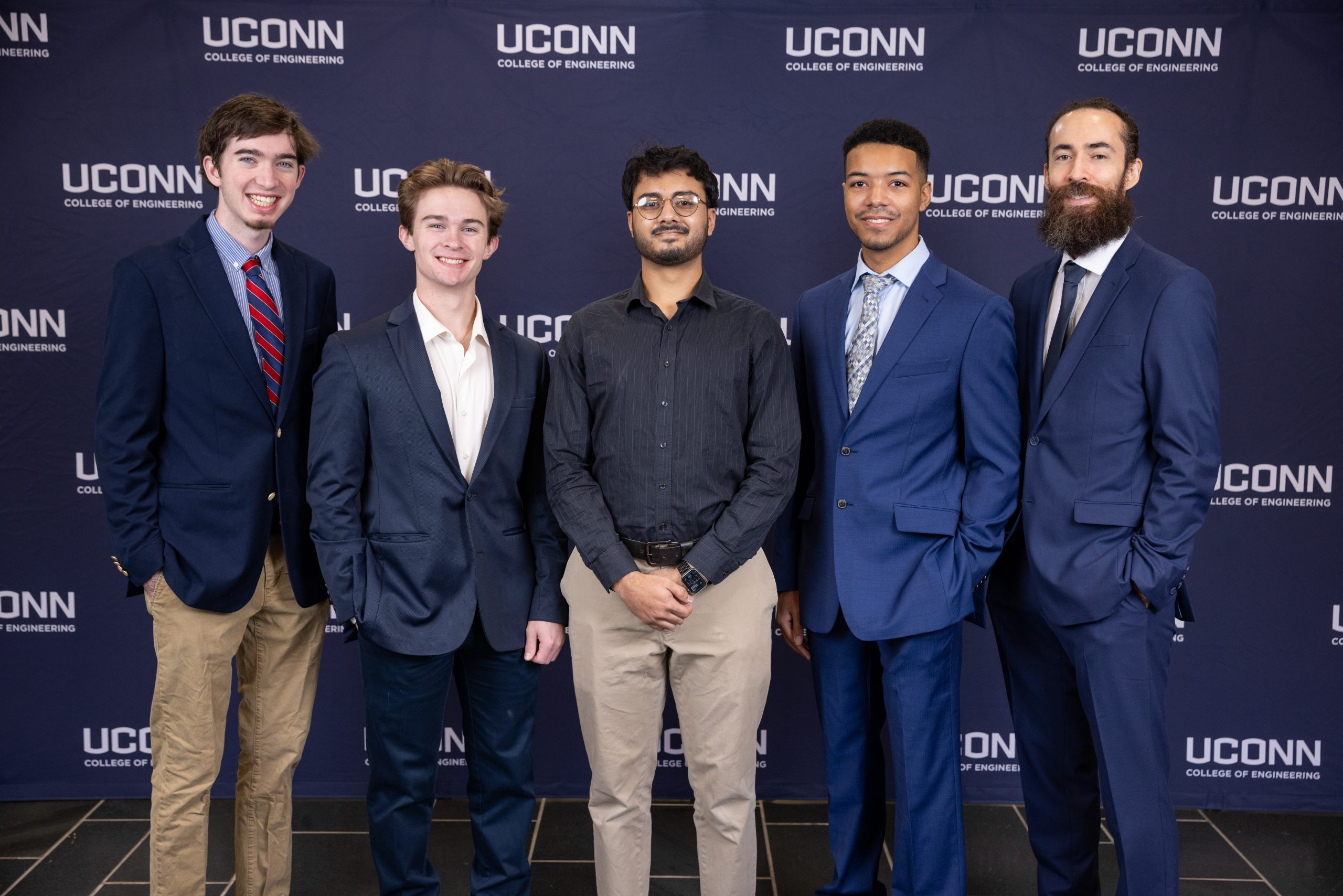
-

-
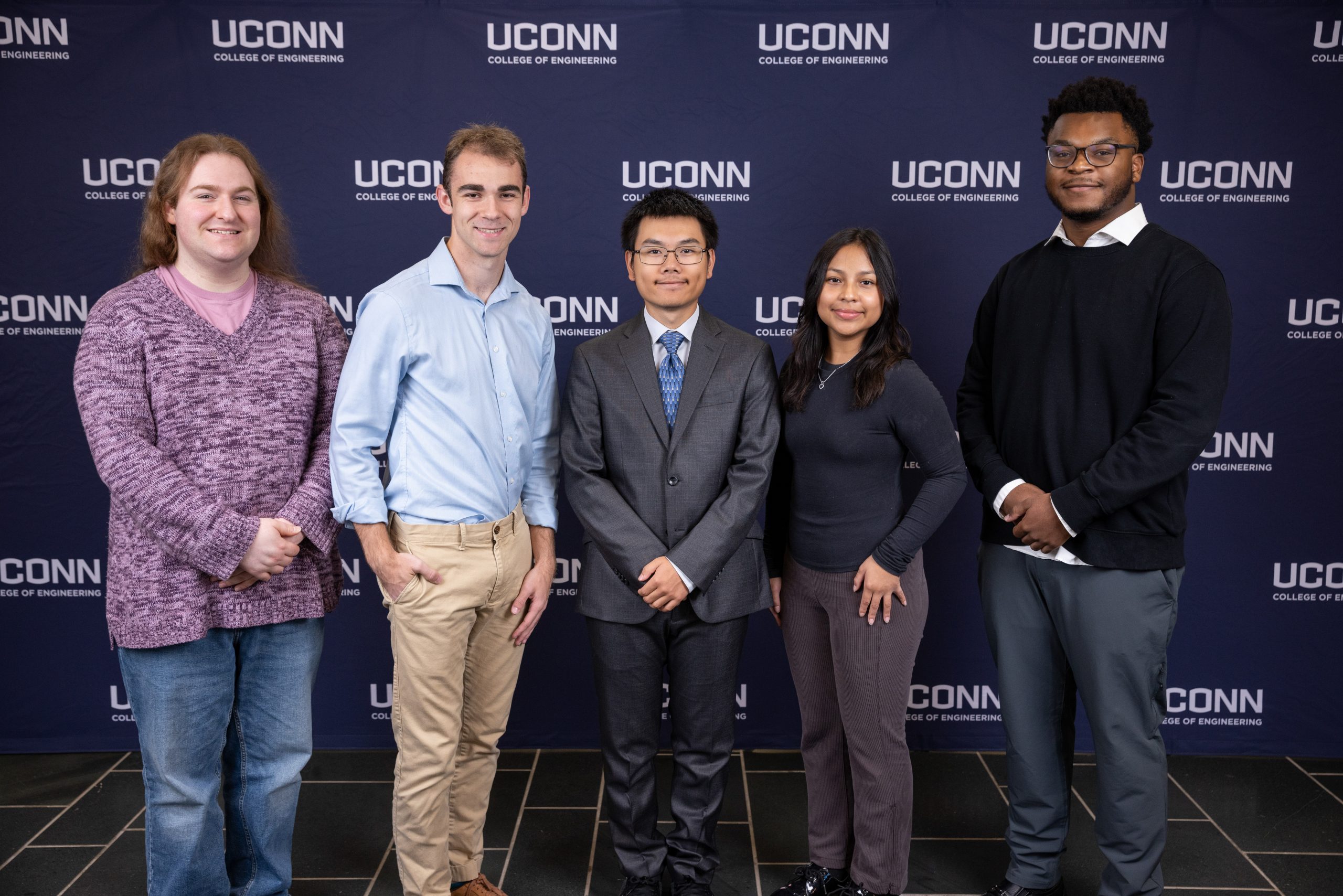
-
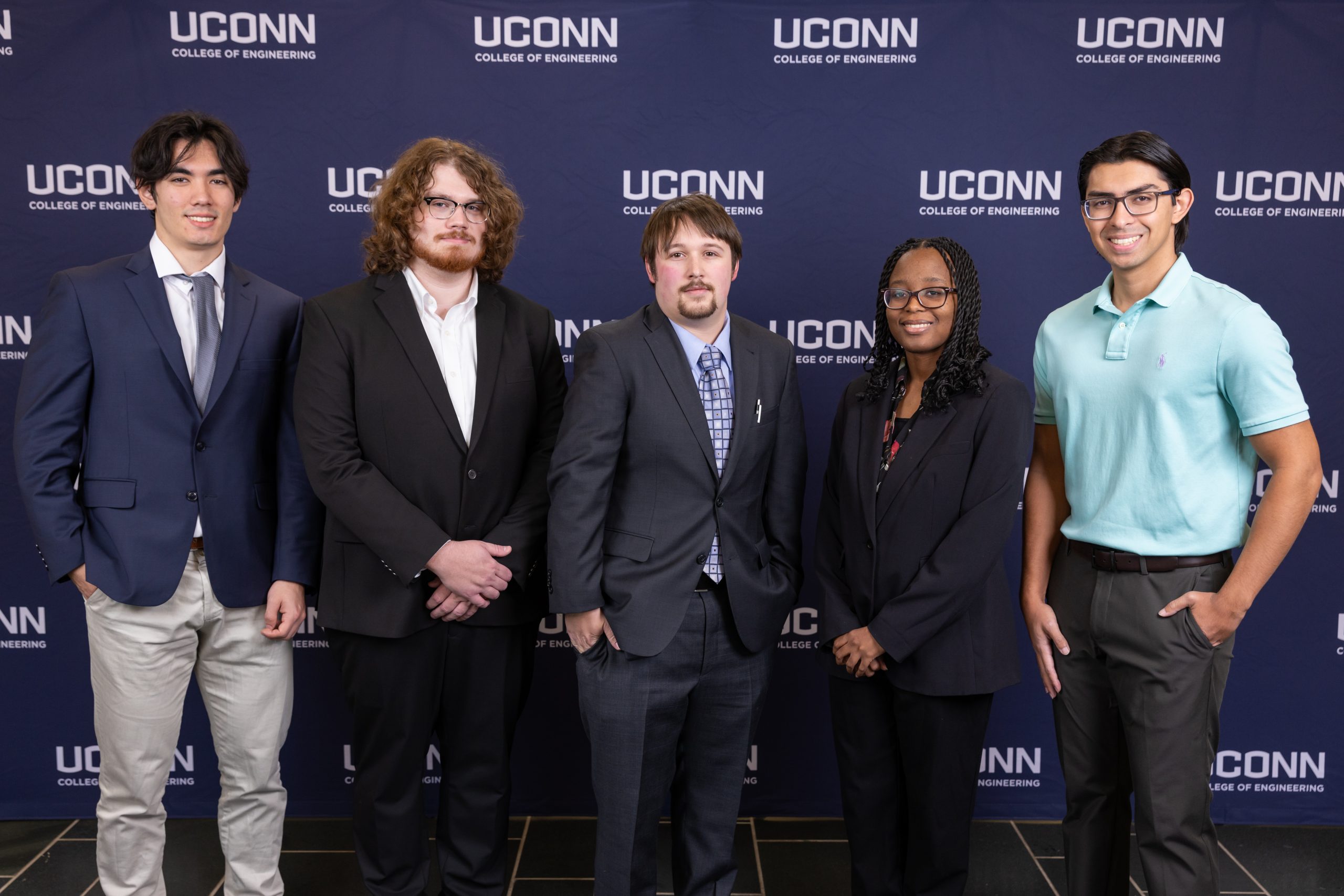
-
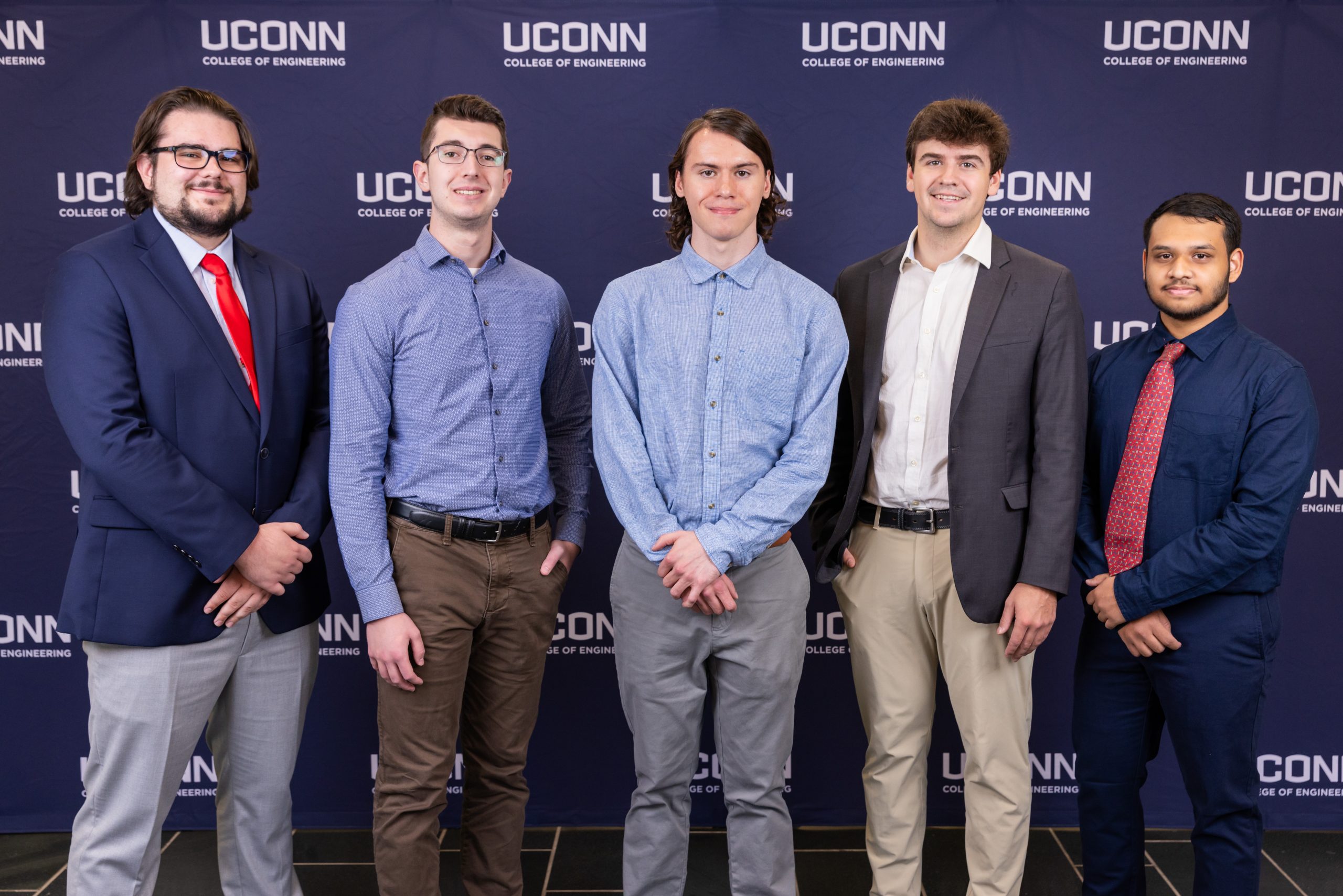
PW Secure Embedded Architecture with Cyber Monitoring and with Actuation Control
-
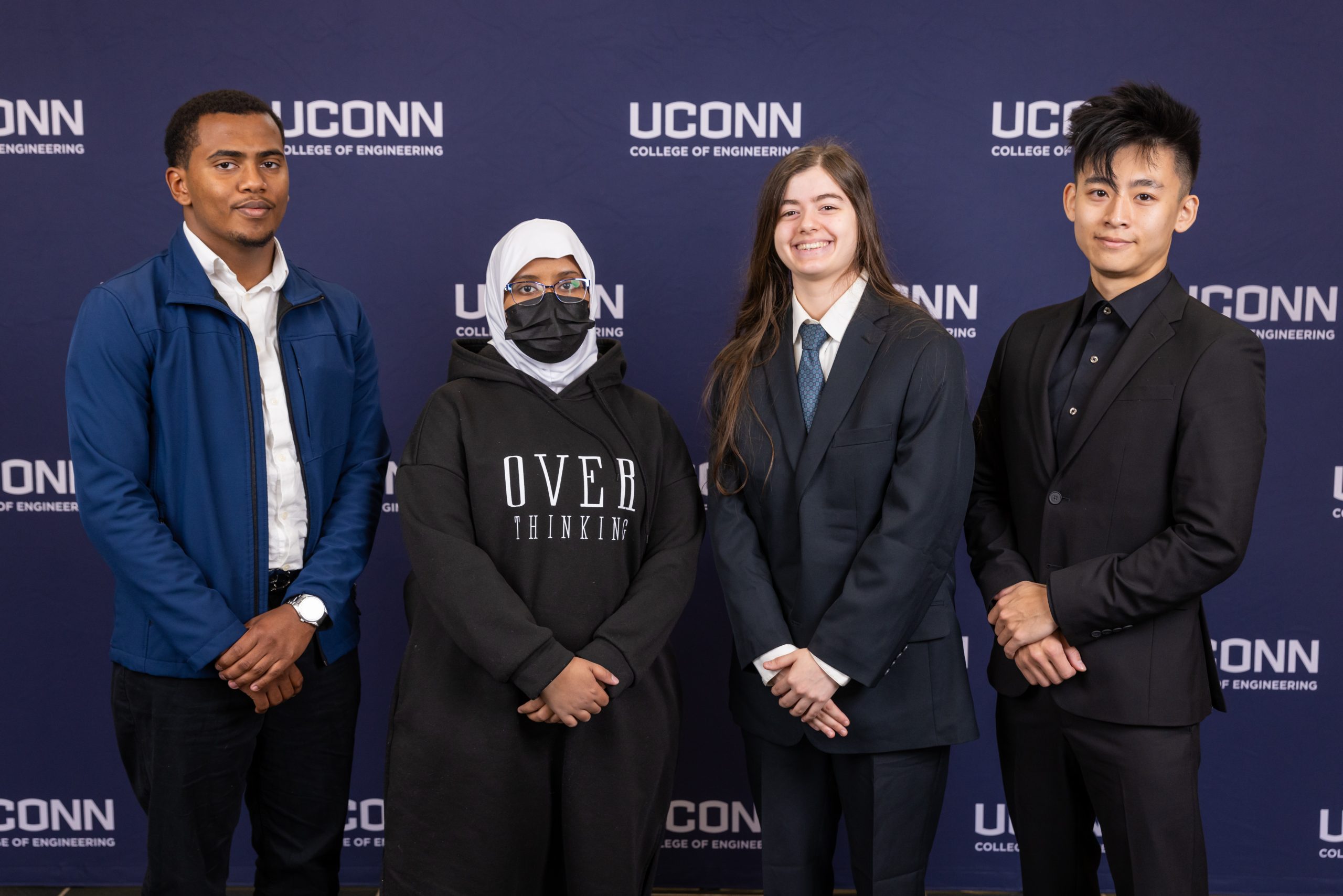
-
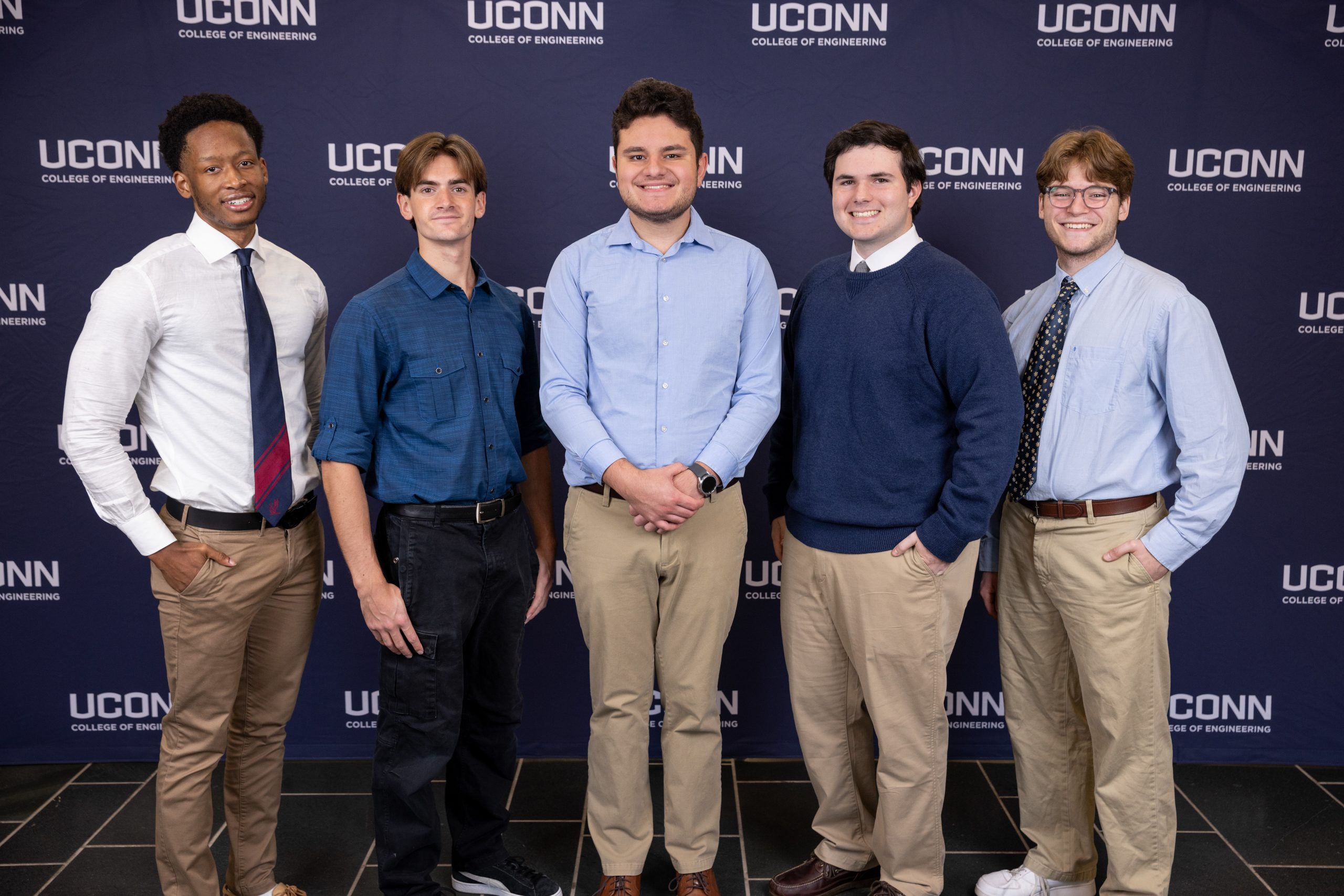
-
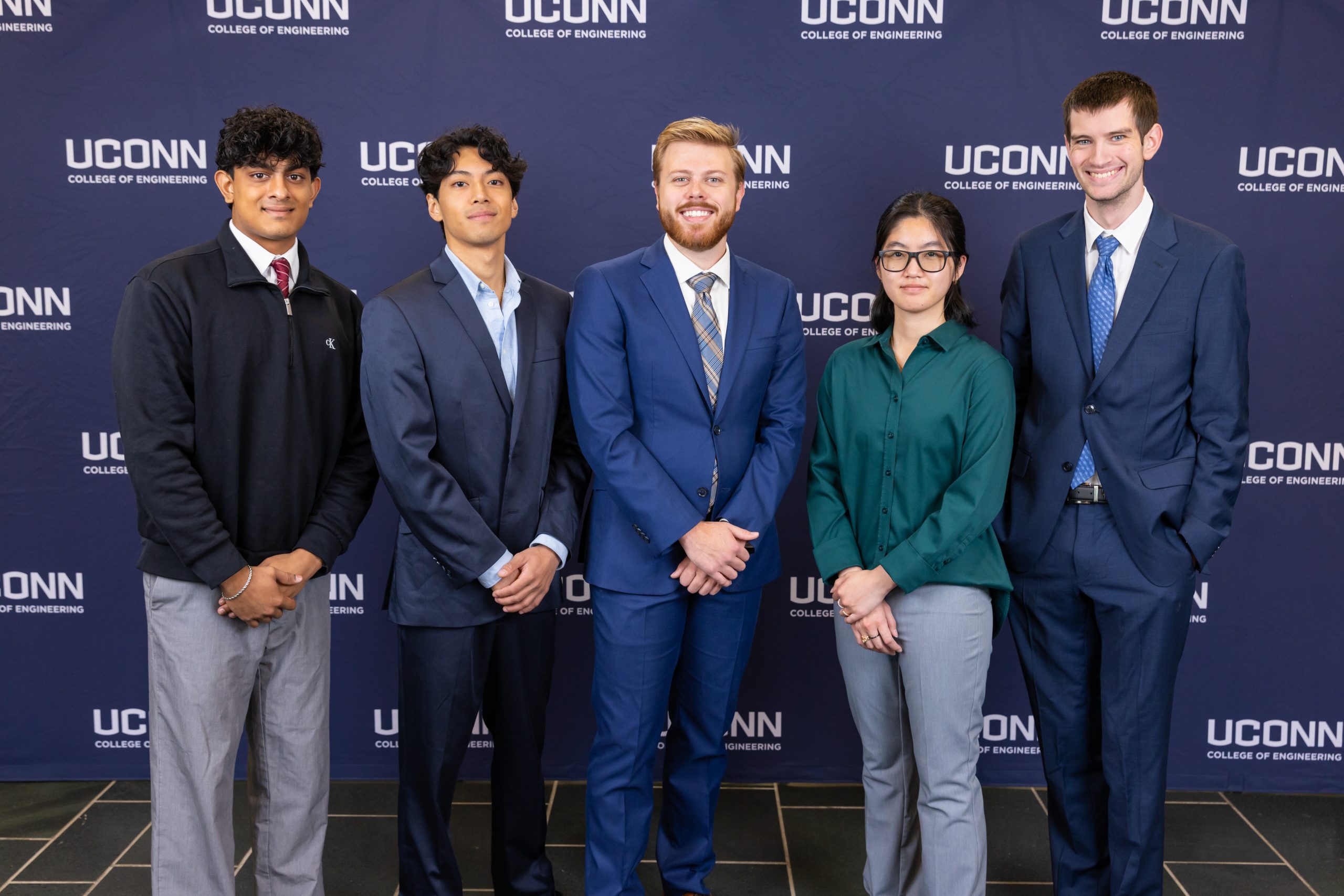
Autonomous Undersea Vessel (AUV) to Inspect hulls of ships in the open ocean or entering ports
-
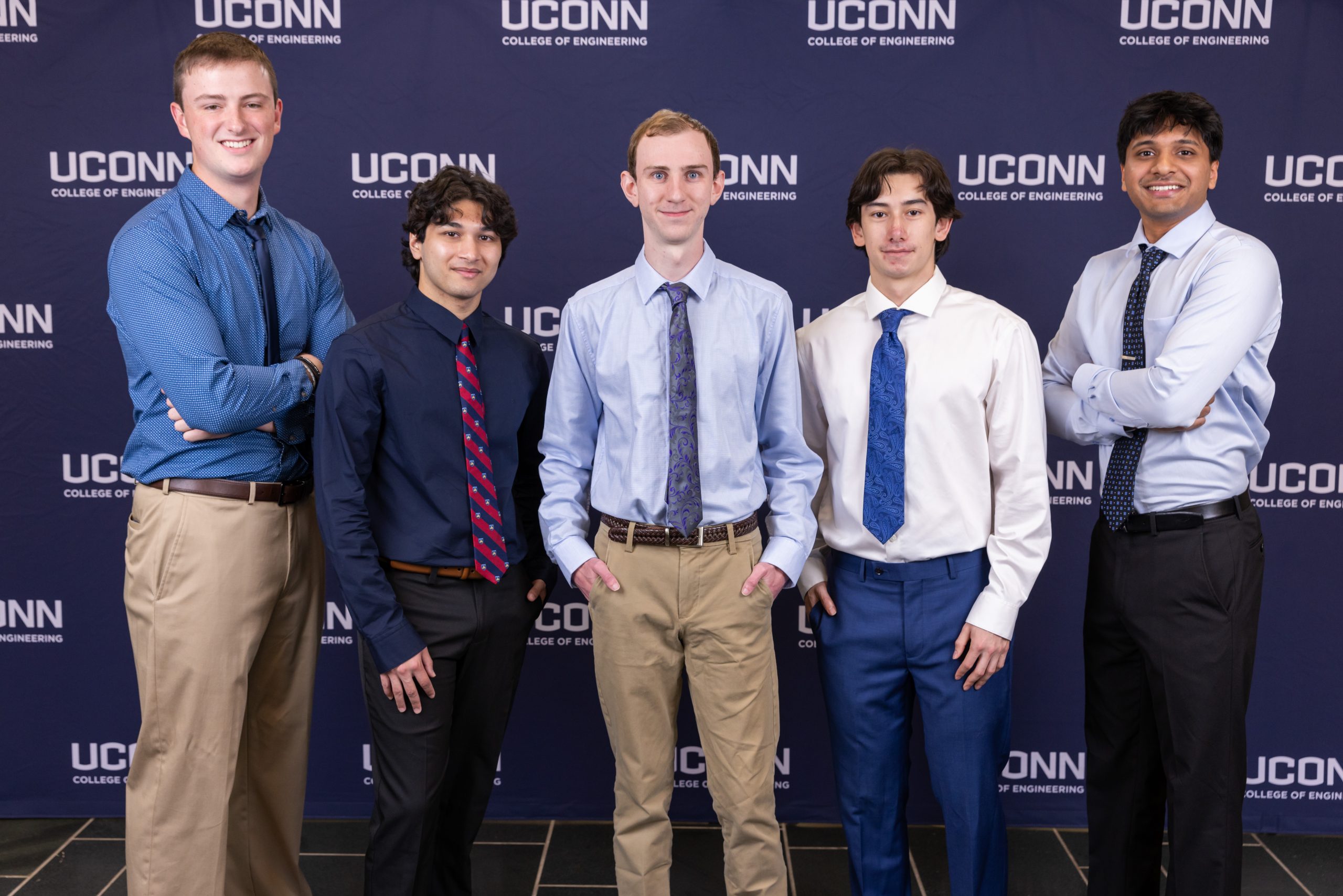
-
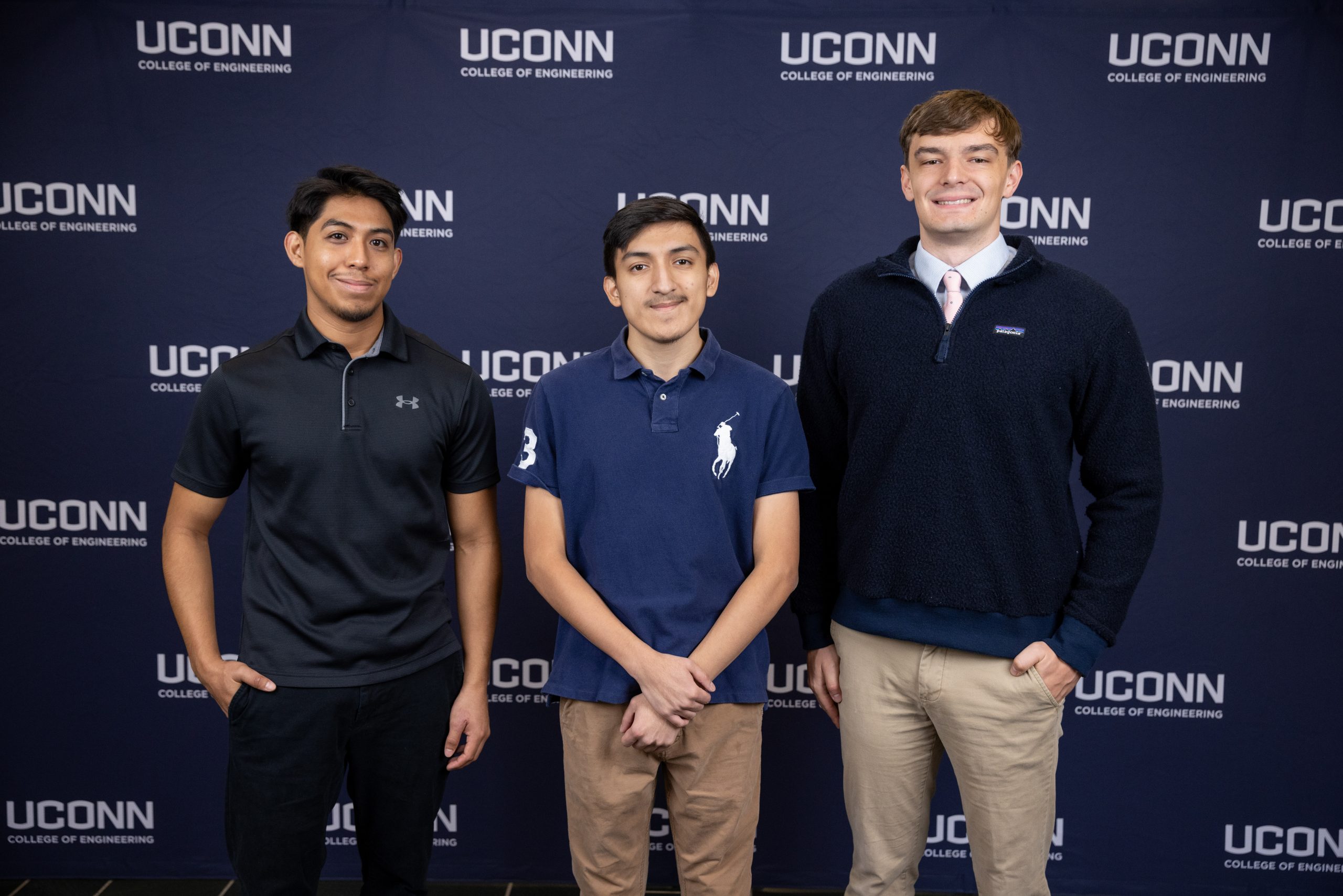
-
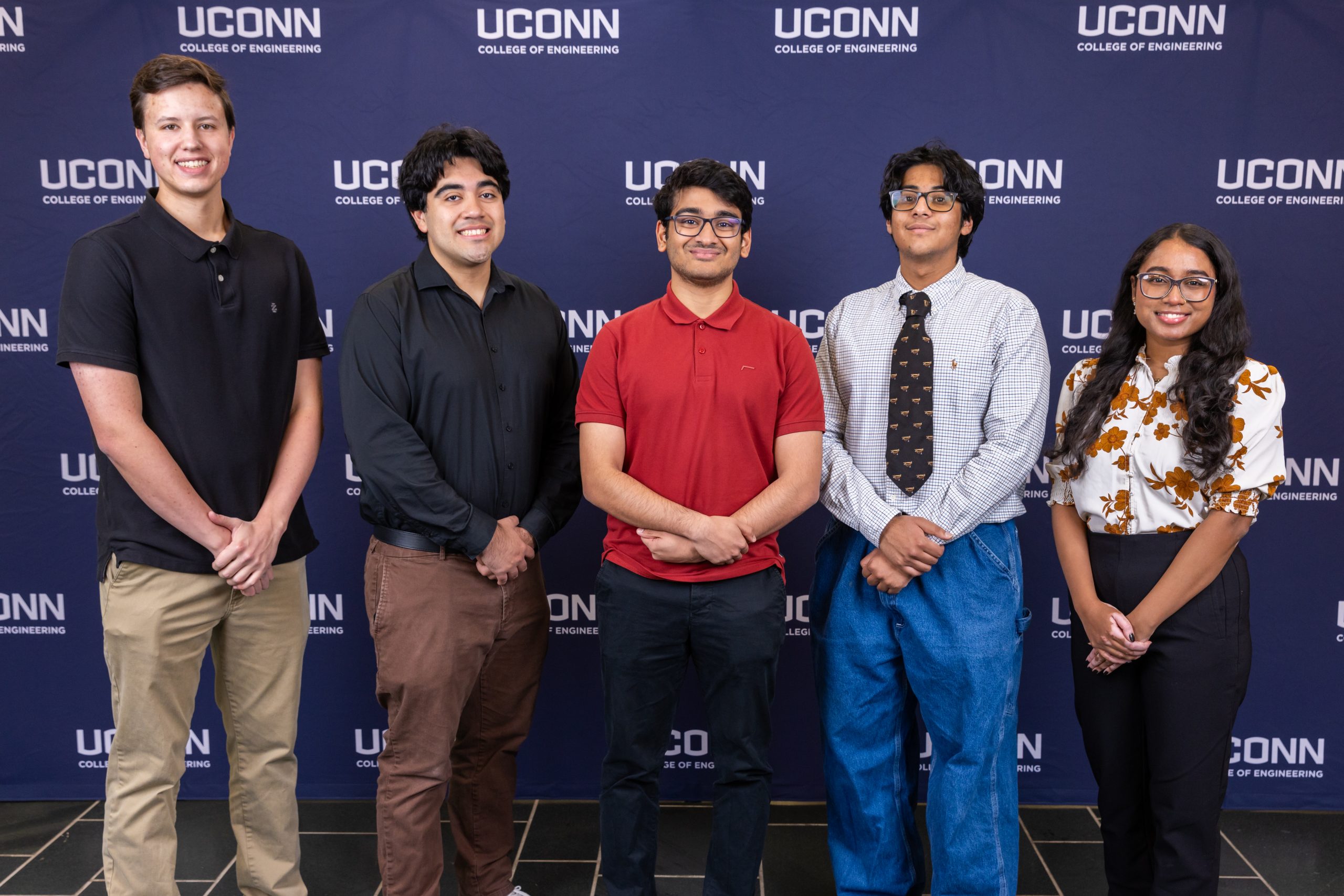
-
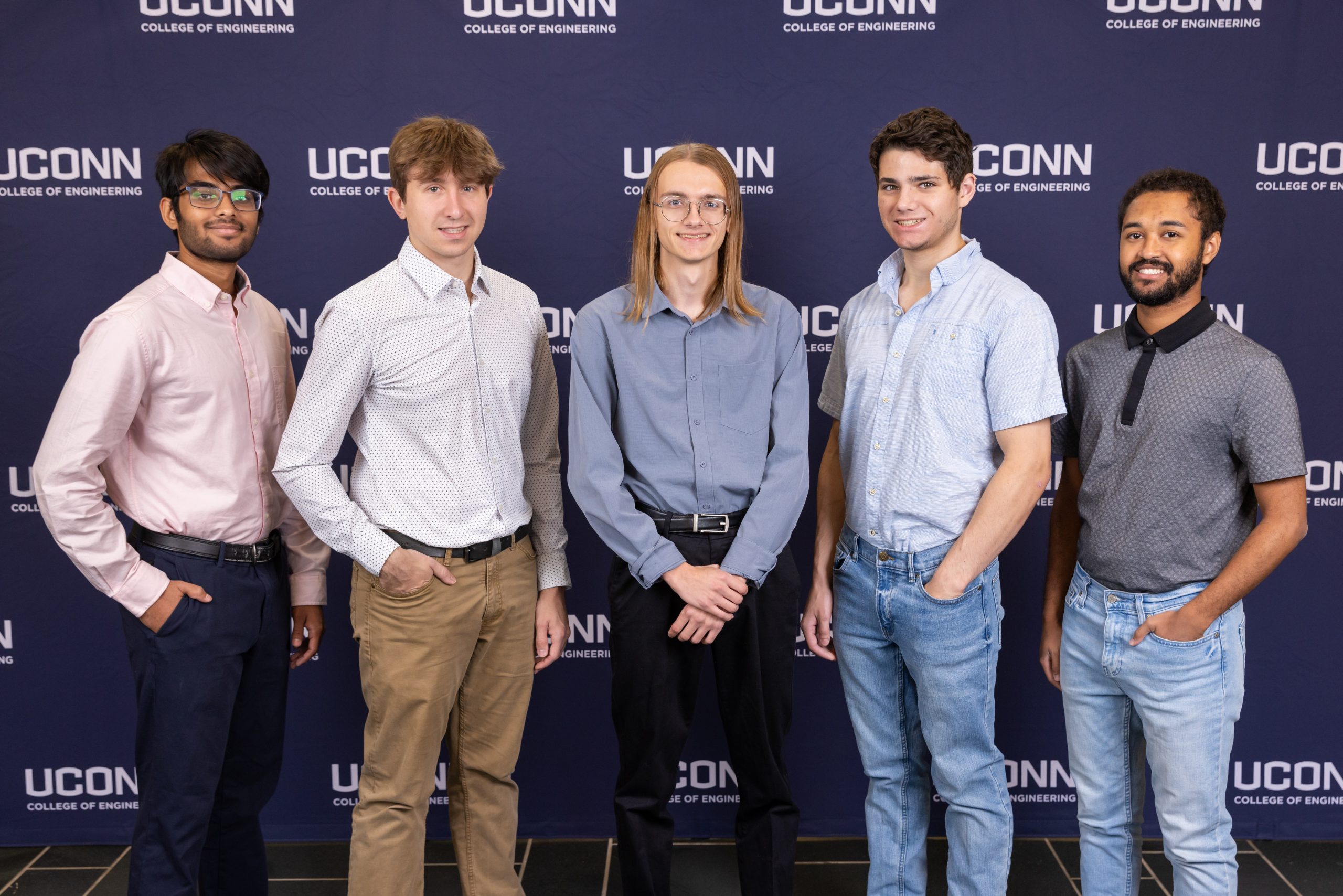
-

-
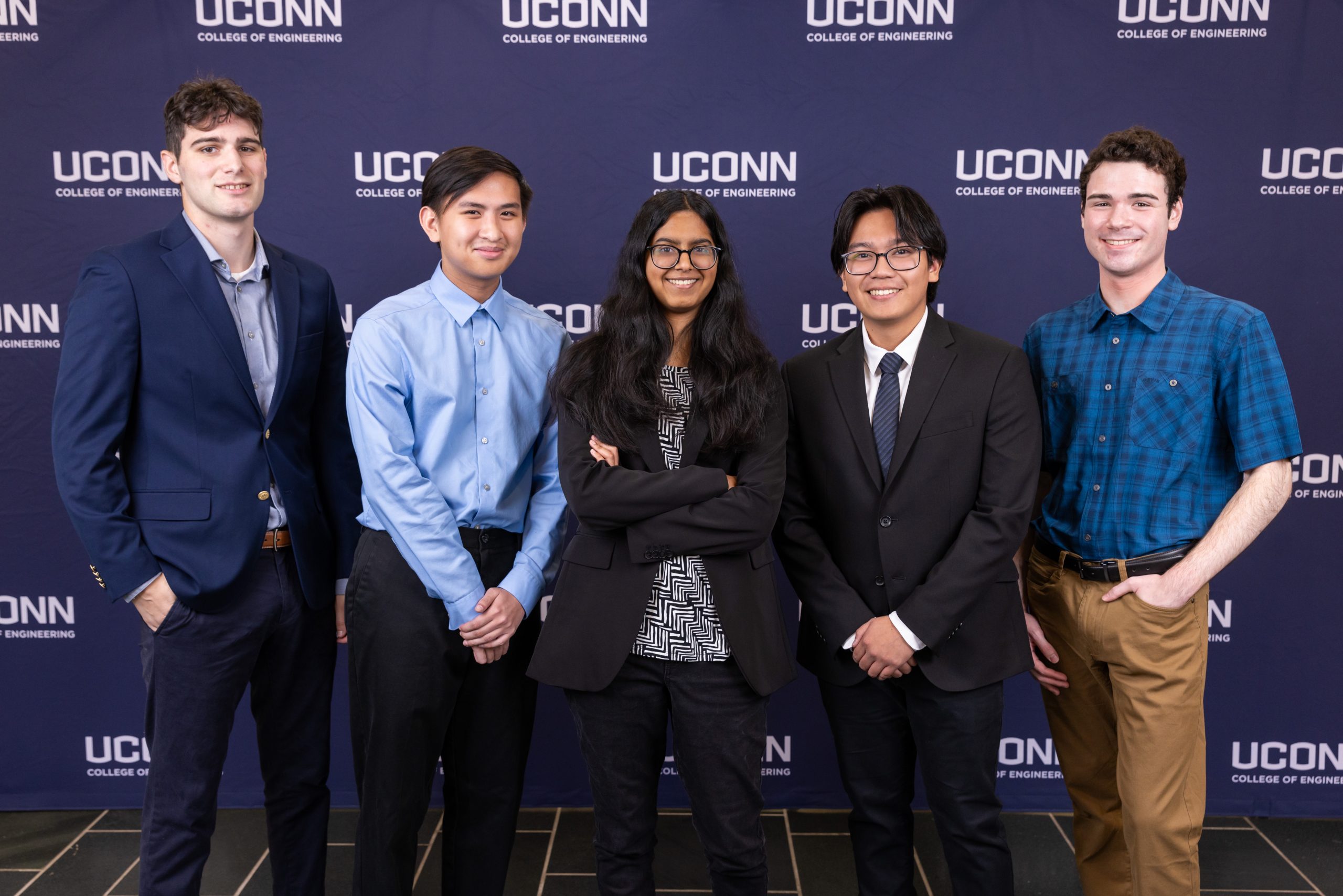
-
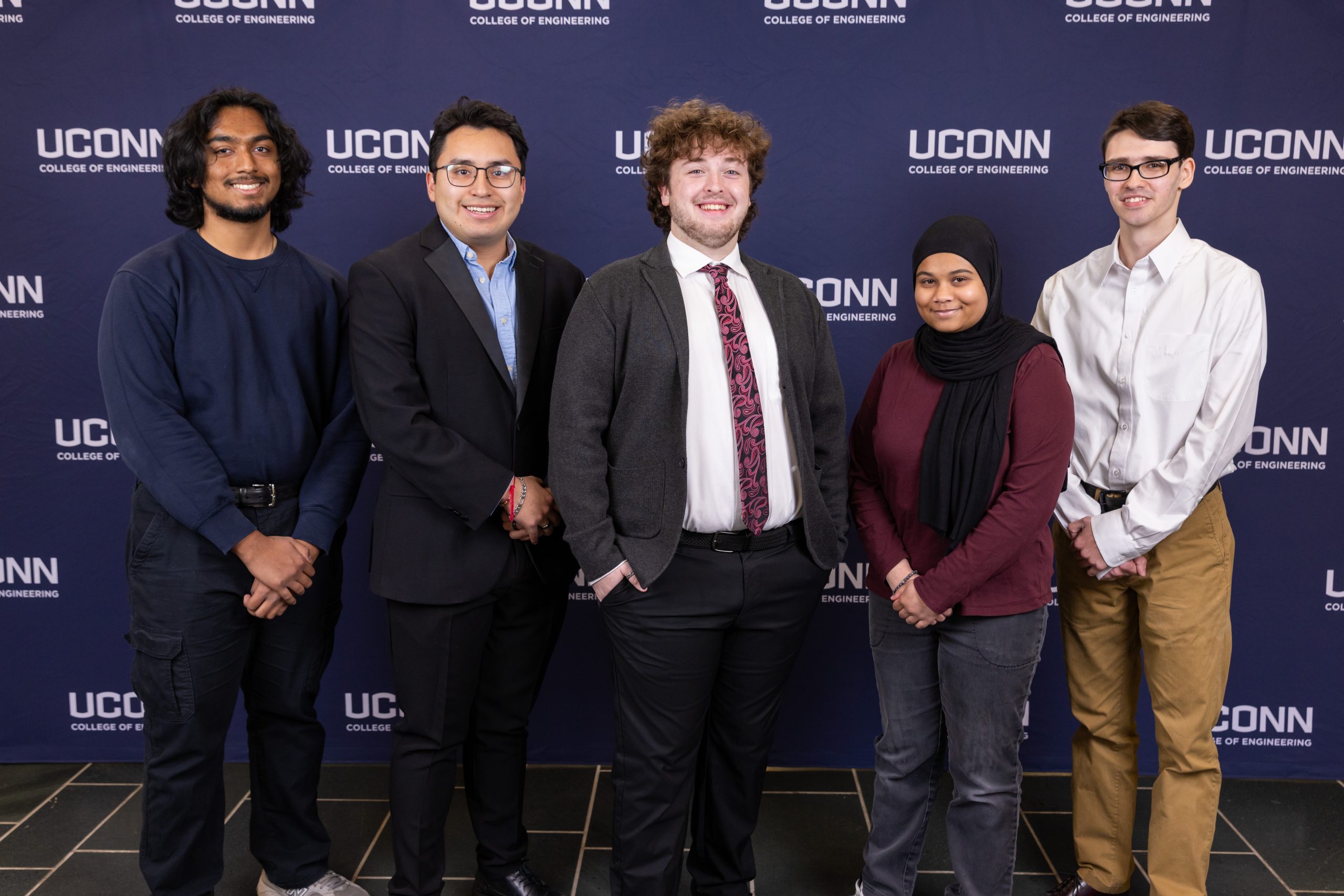
Robot Control through Participant Position and Posture Detection for Human Robotic Interaction
-
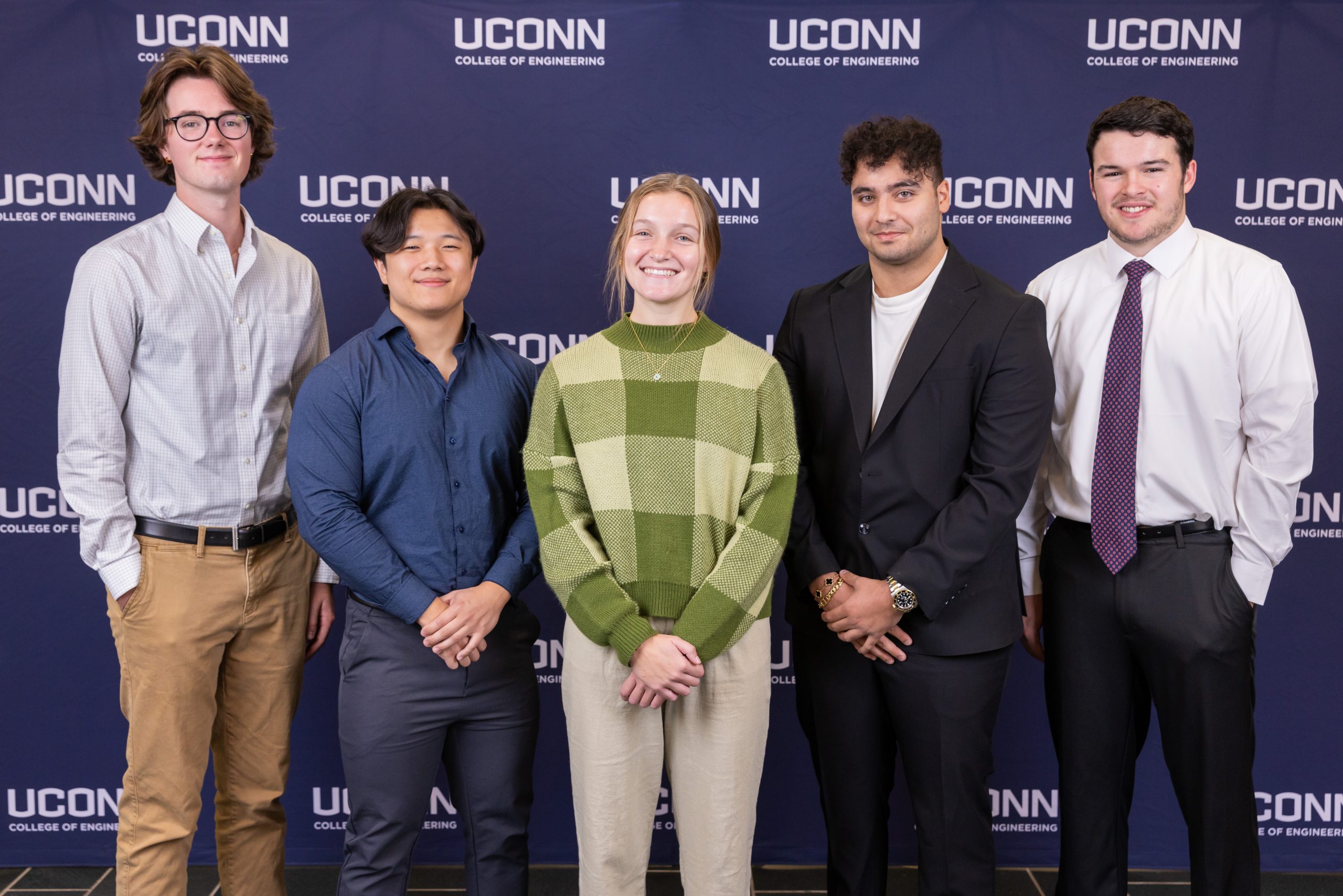
-
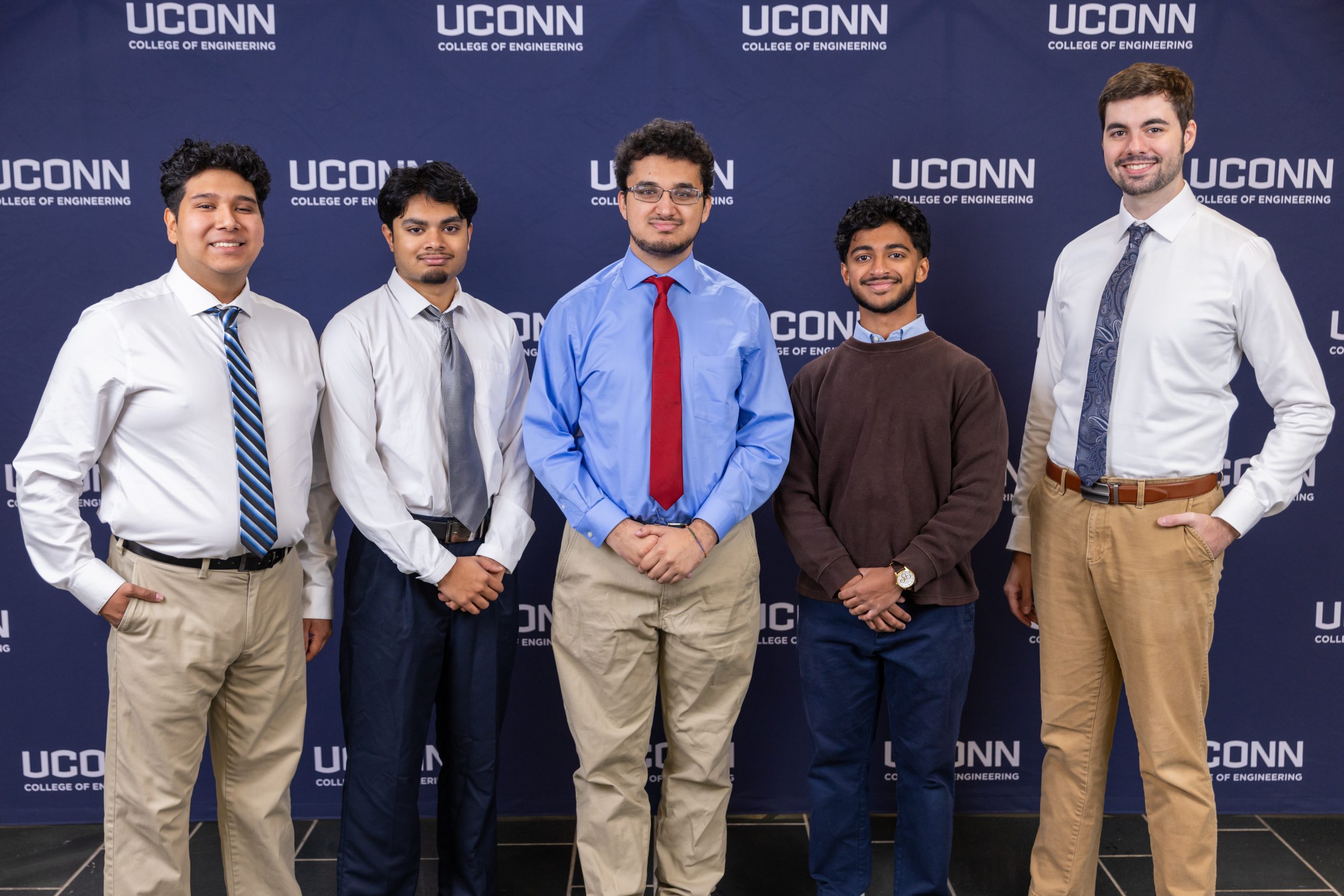
-
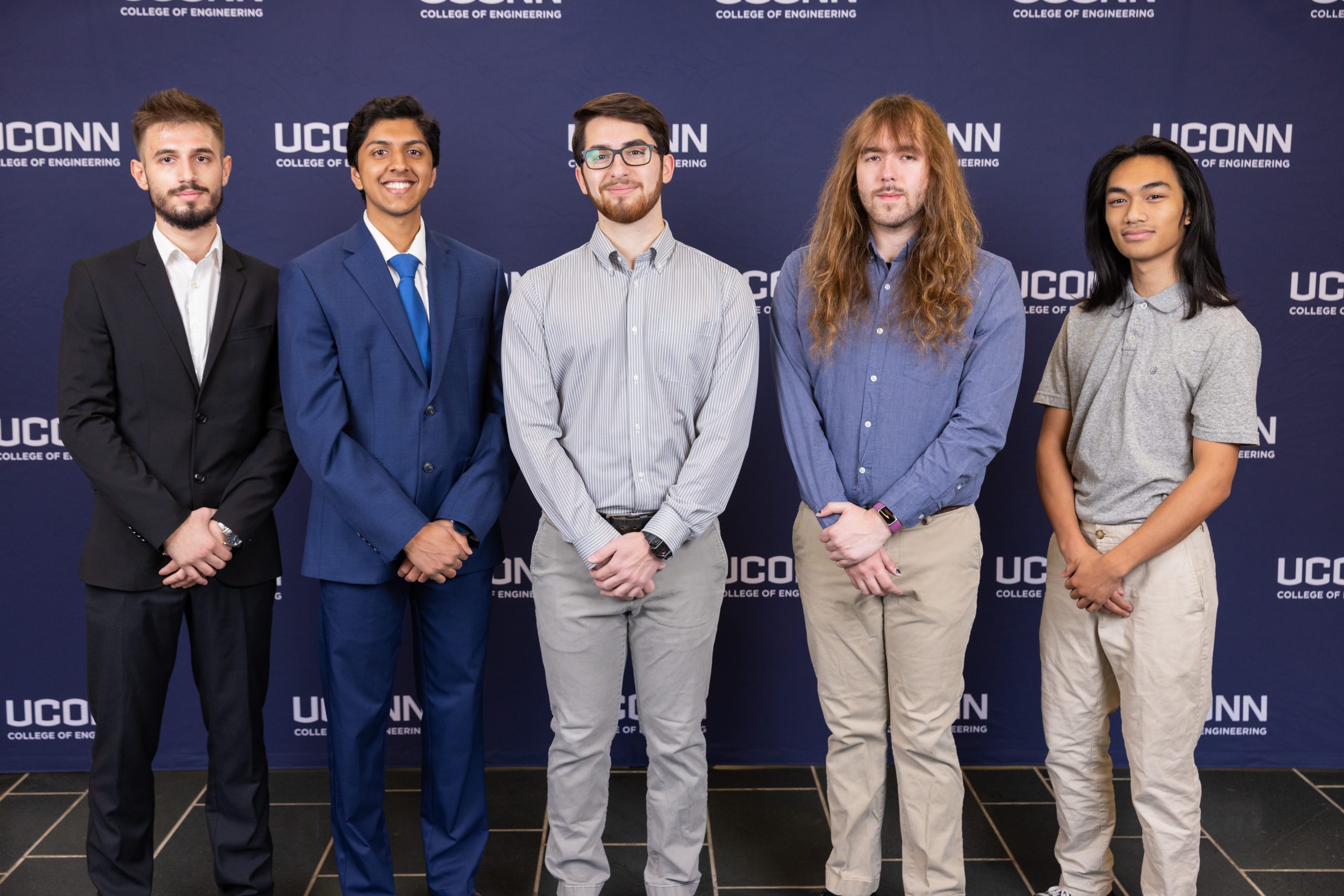
-
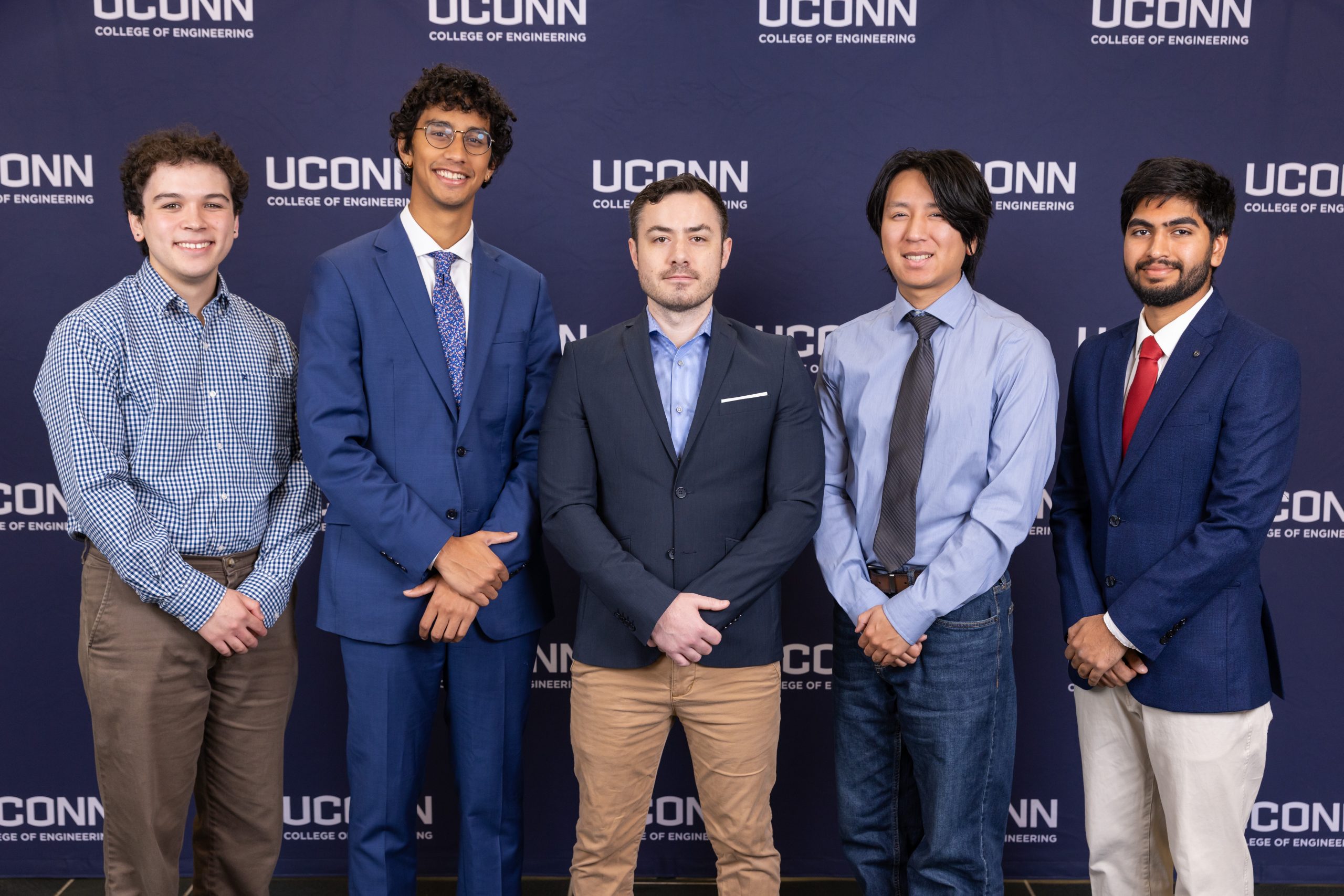
Large Language Models Training for Connecticut Education Network
-
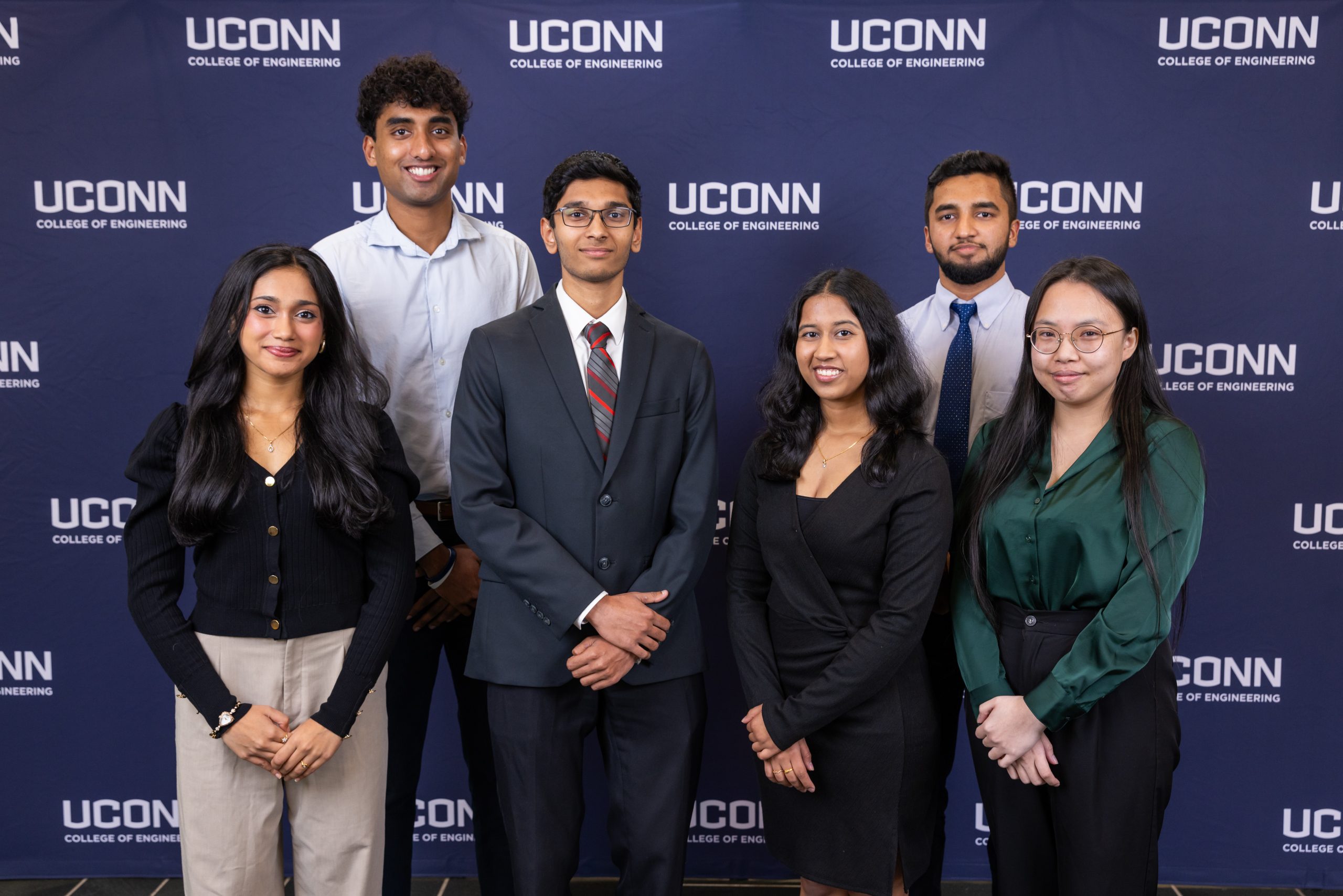
Applying Differential Privacy in Sensitive Vehicle Telematics
-
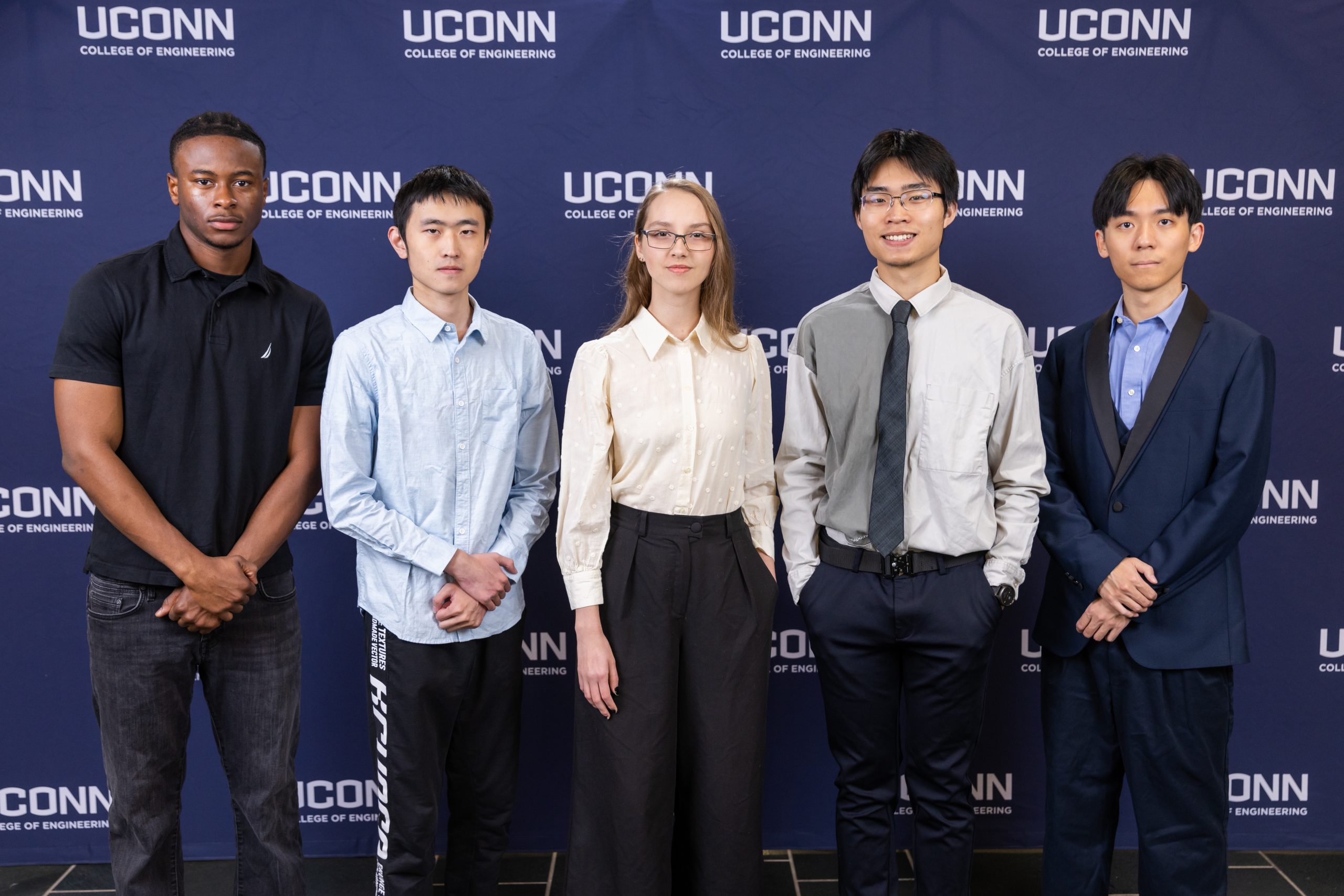
-
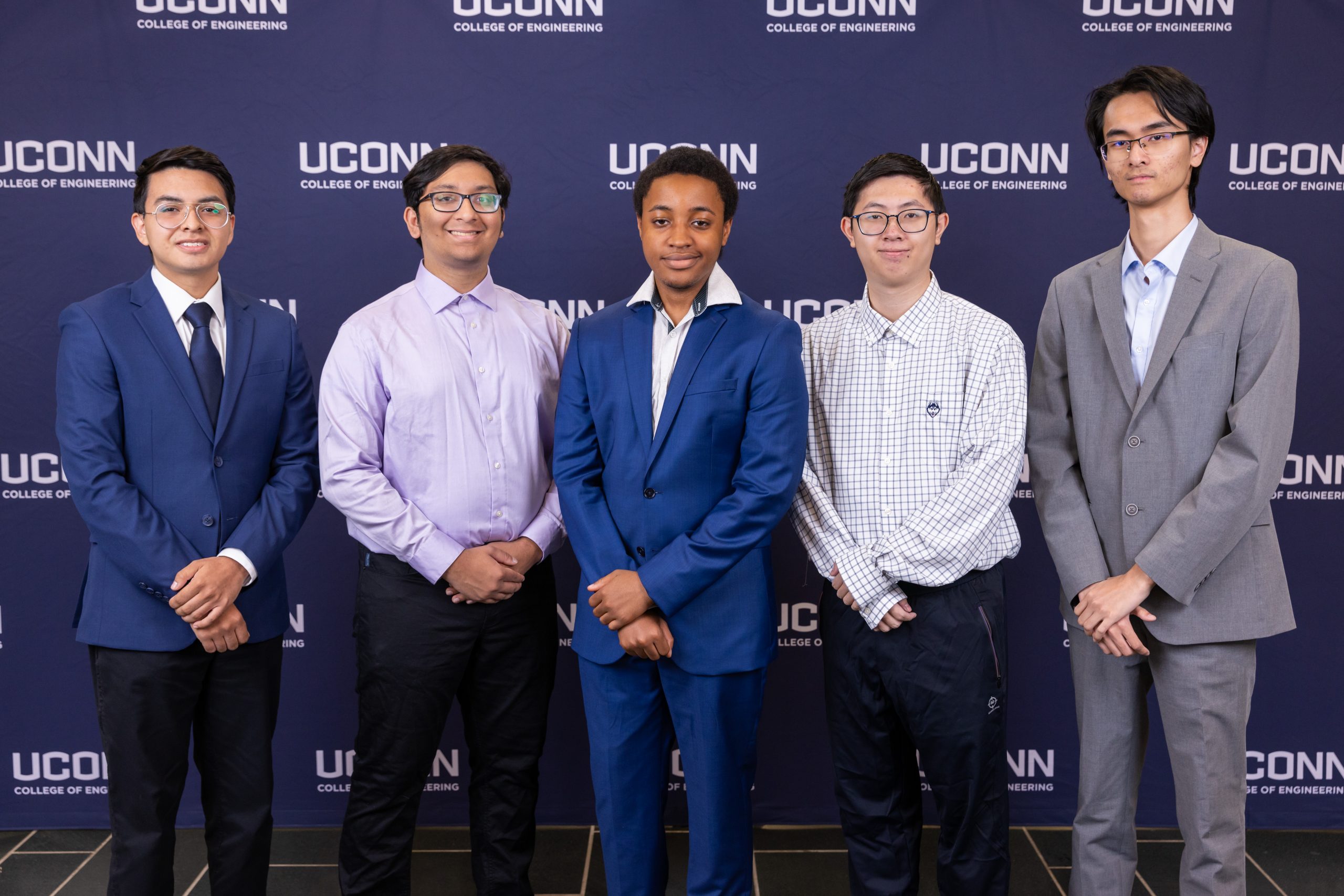
-
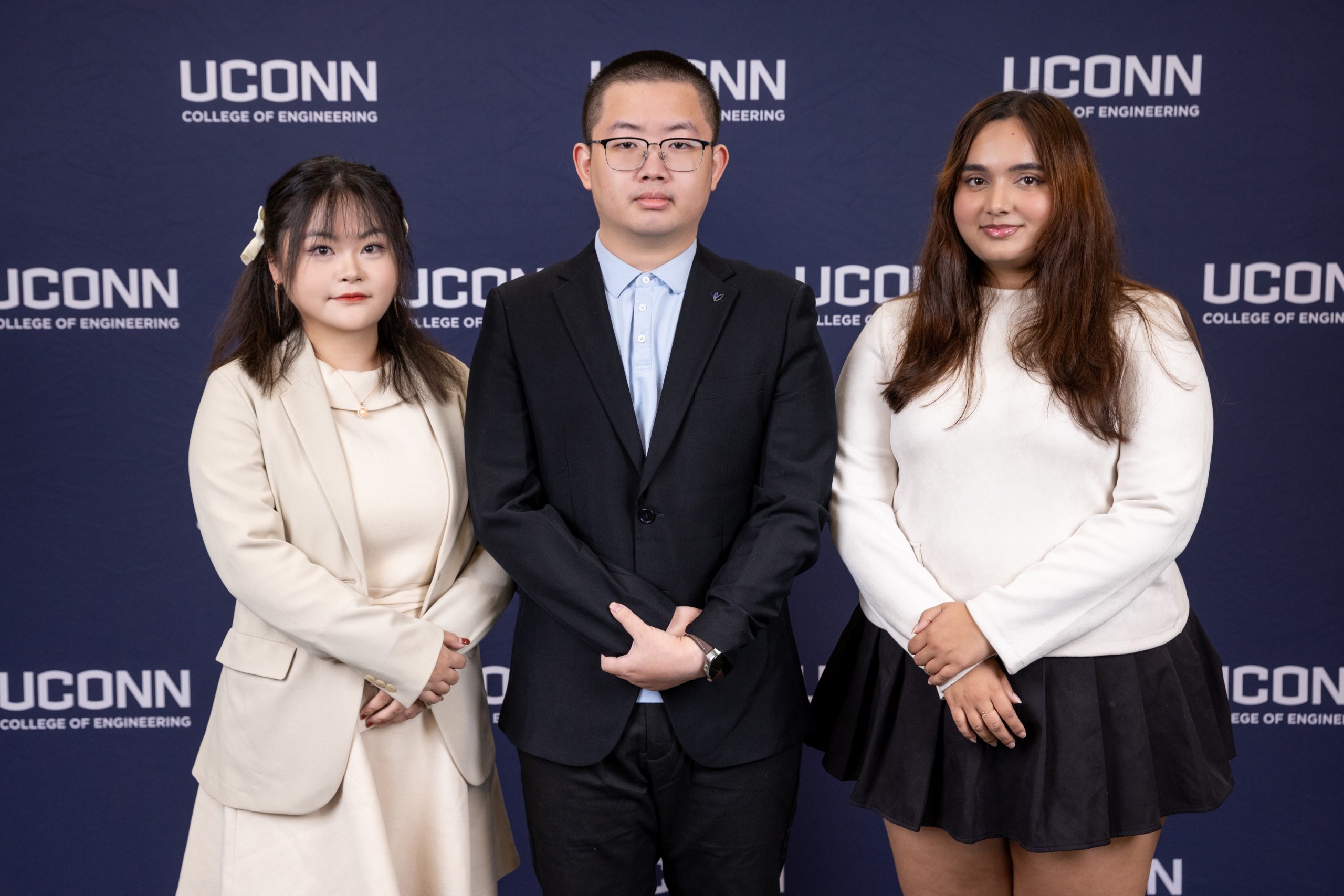
Software-Defined Radio-based 5G NSA/SA Framework Deployment and Evaluation
